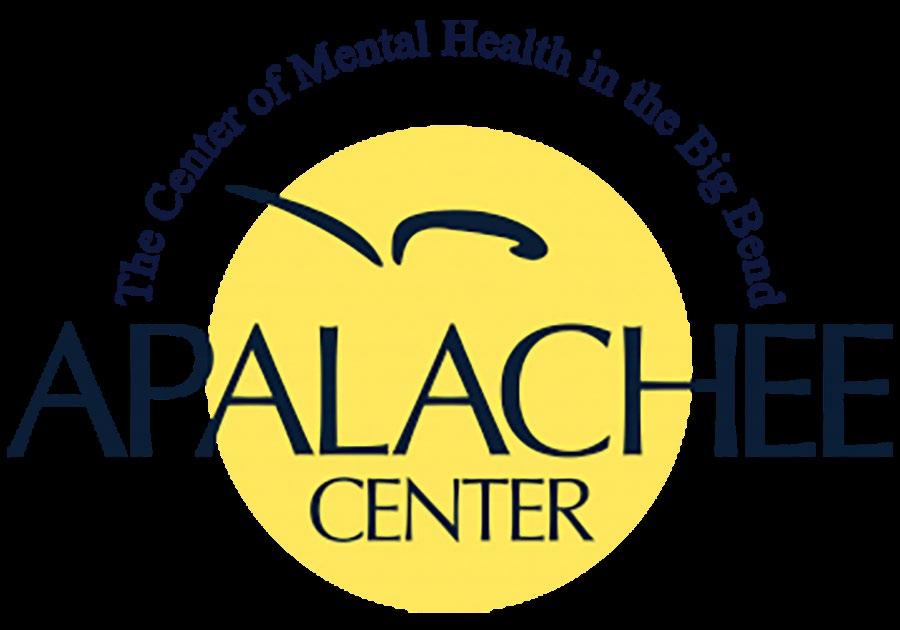















My mission in life is not merely to survive but to thrive, and to do so with some passion, some compassion, some humor, and some style.
- Maya Angelou
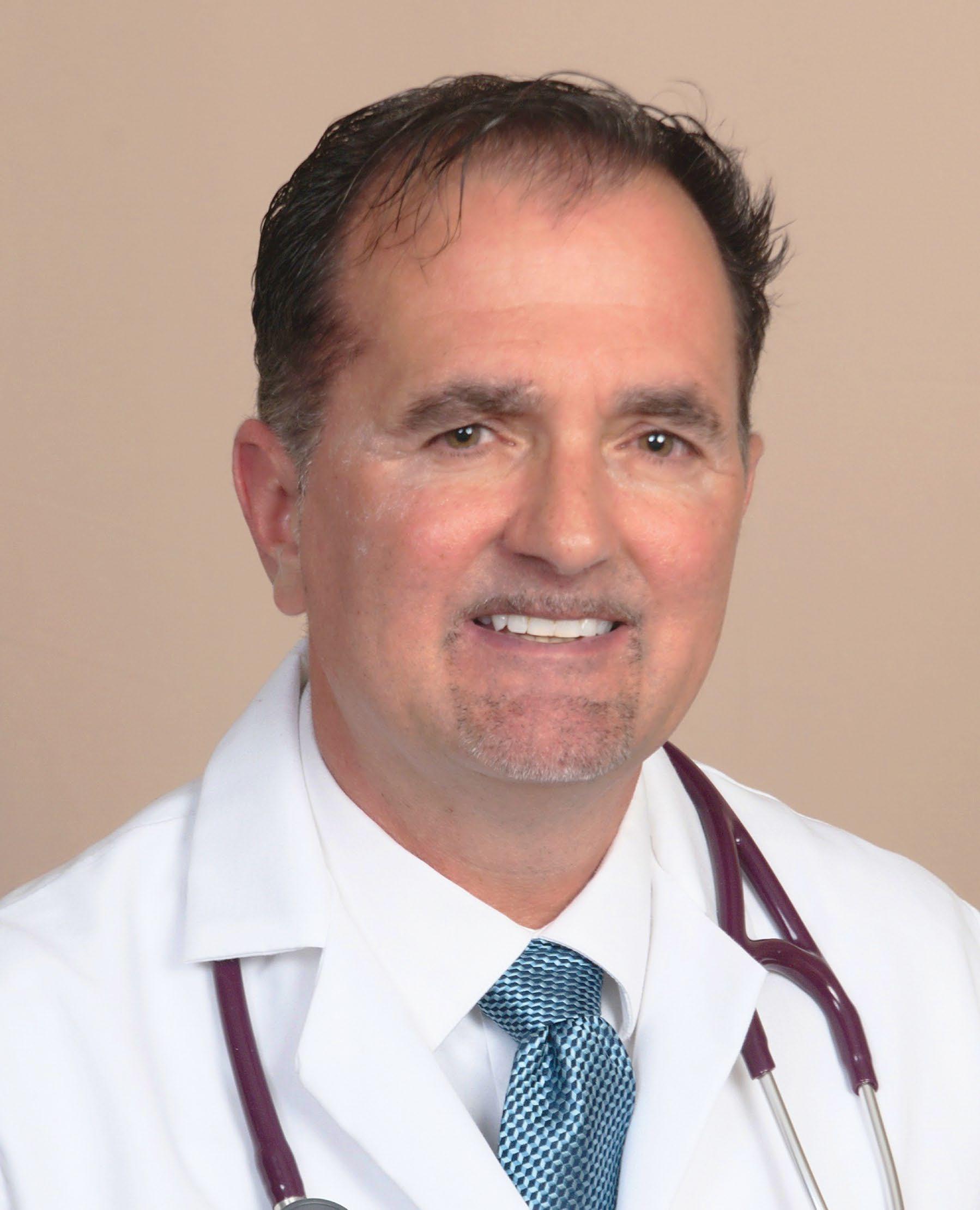
This quote from Maya Angelou is apropos to the world around us today. There are no words that I can think of that recognize and honor all that you as nurses have done during this pandemic. Hero is not the right word. Carer falls way short. Courageous goes without saying. I struggle with the right words that would have meaning and are not just another hollow sounding acknowledgement that nurses have received over the past year. I am an educator, a nurse and practitioner. However, I have not been at the bedside as a staff nurse in many years. I have heard the stories. I have seen the stress. I have witnessed the crisis. However, even as a nurse, I can’t possibly understand how staff nurses and managers continue to show-up and provide the best care possible. It is exhausting on a good day; it is impossible on a pandemic day. I honor you all. I have the utmost respect and admiration for nurses. I have a special place in my heart for staff nurses and nurse managers. Staff nurses have highlighted what we all have known but the public had not acknowledged – Nurses are Amazing Human Beings. They represent the best of us. I am so grateful to be part of such an incredible profession.
This acknowledgement is not meant to downplay the day-to-day crisis that staff nurses are experiencing and working within every day. We are in a healthcare catastrophe and nurses are on the frontlines. Nurses are struggling with moral distress and expectation of their jobs that has become humanly impossible.
Nurses are exhausted. Nurses are more than exhausted. This pandemic has exposed cracks in the profession of nursing. Nursing may be at the precipice of becoming extinct. Pay and working conditions continue to be eroded. Nurses with experience and loyalty are being overlooked and under rewarded. Nurses are being expected to take more responsibility with less and less resources or assistance. We Nurses are at a crossroad. Where do we go from here? What will a nurse and nursing look like in 10 years, in 20 years? Nurses are needed more than ever. Nurses are advocates for our patients, families, and communities. We can either survive or we can thrive. I have faith in the nurses of Florida and our members. I have faith in YOU. I have faith in Nurses.
The Florida Nurses Association and our staff are working with you and for you. I am so proud of the work you have been doing over the past year. The pandemic has not prevented FNA members from advancing our mission. FNA members are engaged. It is so exciting the level of engagement of the membership. I am so grateful and proud for each of our board members. Each bring a strength and perspective that I believe represents us all from novice practicing nurses to seasoned nurses to advanced practice nurses. They are active leaders who excel at representing You and FNA. I have learned more than I gave with these leaders. You are well represented, and your board of directors have the utmost respect and your best interest - nurses and members. Thank you to the 2019-2021 FNA Board of Directors.
My heart continues to be full. I am so proud to be a nurse. Being a nurse is so ingrained in who I am. It has been an honor to represent you these past two years. Thank you for supporting FNA and being a member. FNA has a bright future ahead. I wish you all health and well-being. I will close with a quote that has stayed with me over the past few weeks –‘A generous heart, kind speech [words], and a life of service and compassion are the things which renew humanity’ – Gautama Buddha. Thank you nurses.
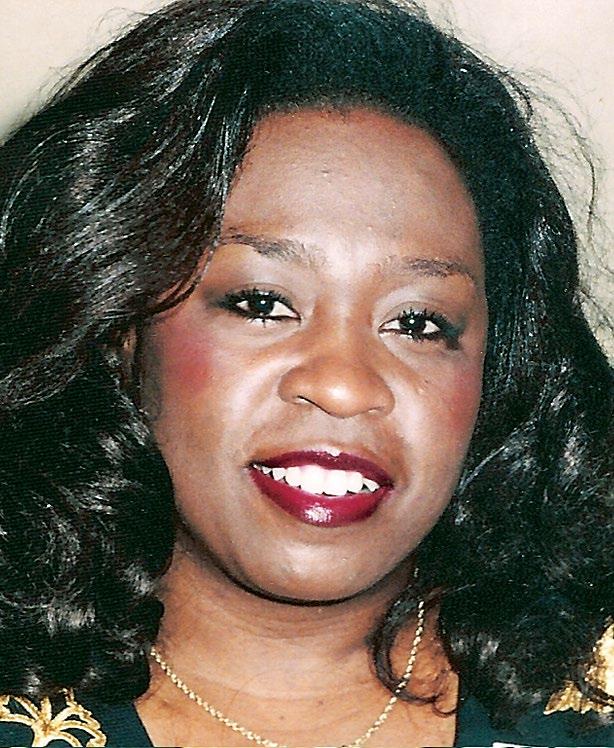 Willa Fuller
Willa Fuller
Advocacy takes patience. It also involves developing a thick skin and the ability to weather a forest of strategy, process and protocols filled with opposition, education and competition. As we try to engage and inform nurses that we care about them and that we are continually working on issues to create change, there are those who express anger toward the association by venting publicly, such as on social media. While this is damaging to the cause, we understand the frustration. We tend not to delete or try to address complex issues on social media posts as it only devolves in to less than professional public dialogue. Instead, we would like to engage and educate nurses to join us in our work.
Some of the issues that we have addressed in the past have taken years to come to fruition while a few, and I do mean a few, have happened in one session, because the right people and the right circumstances were in place. Legislators utilize organized groups, such as associations to learn about their issues. We have so many groups advocating that it sometimes causes confusion. Some groups have partnered and come together to create unity such as the groups that work together regularly on advanced practice issues. The success of such groups depends on honesty, openness and the ability to step back and not obstruct others when opinions differ.
The issues we address come from members through environmental scans of the Board of Directors, our legislative agenda which is formulated from the input of members, reference proposals or position statements from the FNA Membership, or significant events such as the COVID-19 Pandemic that require a response from our leadership.
One of the things that may PREVENT us from moving forward on an issue at any time is the legislative climate and their appetite for specific issues. Does that mean we take it off our agenda? Absolutely not. But it means we plan and strategize and monitor the environment for a time that may be conducive to us moving the issue forward. Thinking practically, what do you do if someone just keeps droning on to you about the same issue? Tune it out, file it or just completely ignore it.
This past September, the membership brought up three issues that it wanted the Florida Nurses Association to address. With the recommendation of our Membership Assembly, which is a part of our governance structure, we formed three task forces: The Pandemic and Disaster Task Force, the Social Justice and Health Task Force, and the Diversity, Equity and Inclusion Task Force.
The FNA Pandemic and Disaster Task Force was most concerned with a coordinated effort to address the Pandemic and seeks to explore ways to see that happen in future disasters. Other issues addressed is the mental and physical health and well-being of nurses
Notes from the ED continued on page 15
The FNA staff continues to work remotely and visit the office as needed. We are continuing to follow all CDC guidelines and recommendations during office visits. Throughout this period of virtual work, our staff has maintained professionalism and juggled a large workload among its six members. Close communication through digital apps and weekly zoom meetings have been key in keeping connected. Our office hours remain from 8:30am-4:30pm EST Monday-Friday. Staff can still be reached via phone and email. We are excited to announce that we will soon be bringing on a new team member to assist with membership, events, and technology. We also have two staffing changes to announce.
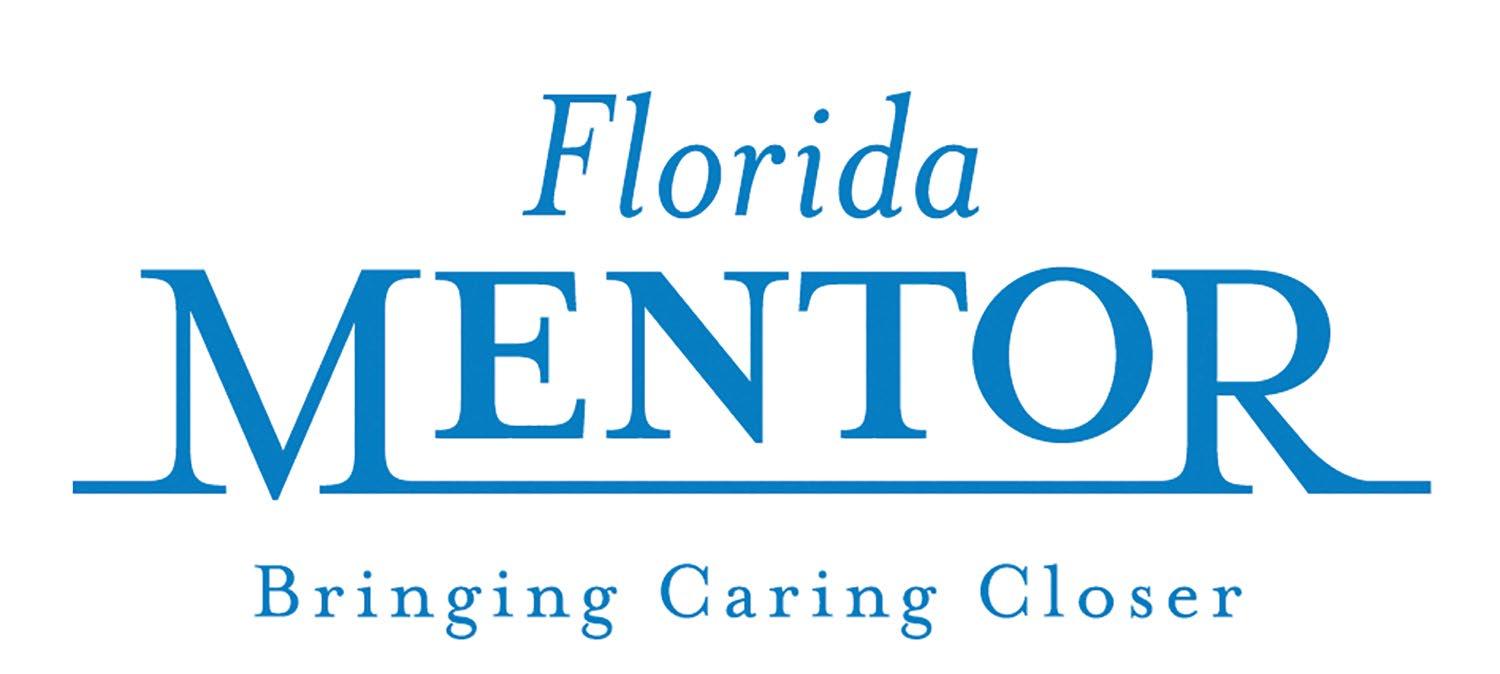
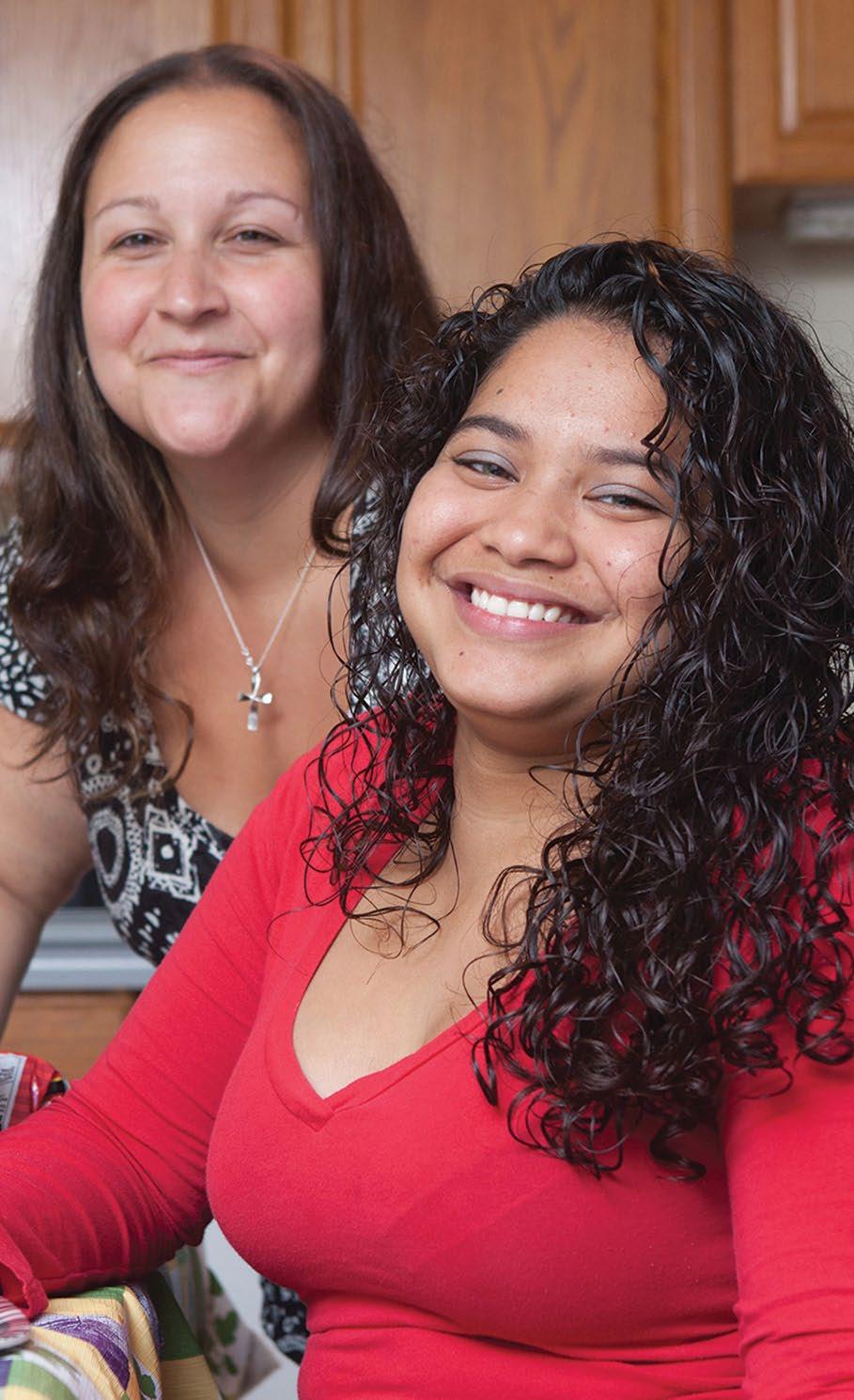
ü Paid training
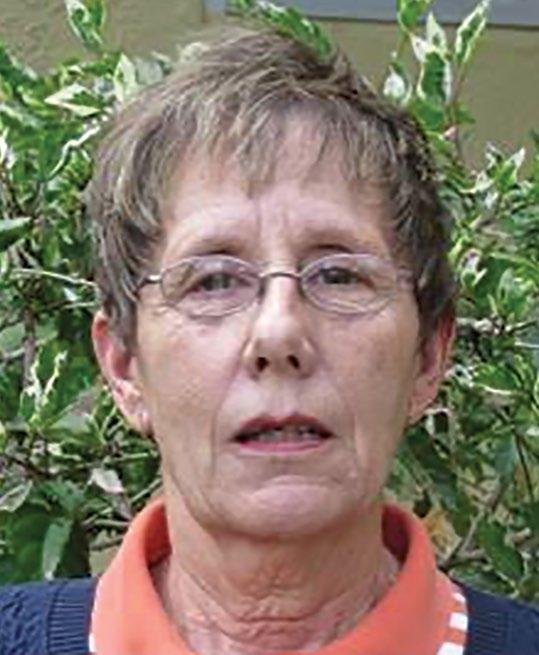
Leslie Homsted, who has been with FNA for 26 years – first as the Director of Labor Relations (1992-2010) and after a brief retirement as the Receptionist/ Membership Specialist (20132021) – has been promoted to the role of Office Manager. Her exemplary dedication to FNA and leadership among the staff have always been evident and during the year and a half of remote working, her contributions and responsibilities evolved to an even greater extent. Everyone enjoys interacting with Leslie and appreciates her welcoming attitude on the phone. She is proud of the fact that we still have “humans” answering the phone. She is happy to provide that comfort and security to our members and nonmembers alike. We appreciate and congratulate Leslie for all she does for FNA and for her commitment to the profession.
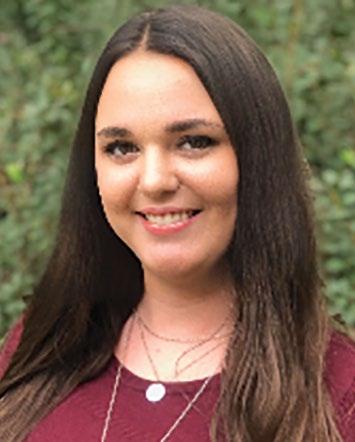
Kaitlin Scarbary, who has been with FNA for five years, has received a promotion from Associate Director to Director of Member Programs and Technology. During the challenges experienced with the pivot to a virtual environment, she has proven herself to be a capable leader and her skills have been invaluable to the association. We were able to make a seamless transition to a “hybrid” office, virtual and hybrid conferences and also to transform the branding of the Association through these challenging times. Kaitlin rapidly learned the important aspects of the association world and is continually seeking ways to keep FNA in step with the rapidly evolving pace of technology today. This includes onboarding and maintaining our new member management system, identifying platforms to support the virtual aspect of our office and transitioning our conferences to virtual and hybrid platforms. We congratulate these fantastic employees on their accomplishments.

Owned and Published by, Florida Nurses Association
1235 E. Concord Street, Orlando, FL 32803-5403
P.O. Box 536985, Orlando, FL 32853-6985
Telephone: (407) 896-3261
FAX: (407) 896-9042
E-mail: info@floridanurse.org
Website: http://www.floridanurse.org
Office Hours: 8:30 a.m. to 4:30 p.m., Monday thru Friday
For advertising rates and information, please contact Arthur L. Davis Publishing Agency, Inc., PO Box 216, Cedar Falls, Iowa 50613, (800) 6264081, sales@aldpub.com. FNA and the Arthur L. Davis Publishing Agency, Inc. reserve the right to reject any advertisement. Responsibility for errors in advertising is limited to corrections in the next issue or refund of price of advertisement.
Acceptance of advertising does not imply endorsement or approval by the Florida Nurses Association of products advertised, the advertisers, or the claims made. Rejection of an advertisement does not imply a product offered for advertising is without merit, or that the manufacturer lacks integrity, or that this association disapproves of the product or its use. FNA and the Arthur L. Davis Publishing Agency, Inc. shall not be held liable for any consequences resulting from purchase or use of an advertiser’s product. Articles appearing in this publication express the opinions of the authors; they do not necessarily reflect views of the staff, board, or membership of FNA or those of the national or local associations.
Published quarterly, February, May, August and November by FNA, a constituent member of the American Nurses Association.
Editor – Kaitlin Scarbary, 1235 E. Concord St., Orlando, FL 32803-5403
Subscription available at $20.00 plus tax, per year. Members of FNA receive the newspaper as a benefit of membership.
COPIES of The Florida Nurse are available on 35mm microfilm, 106mm microfilm, article reprints and issue copies through Bell & Howell, 300 North Zeeb Road, Ann Arbor, Michigan 48106
Board of Directors
2019–2021
Officers
George Byron Peraza-Smith, DNP, RN, APRN, GNP, AGPCNP, President
Janice Adams, DNP, MPA, RN, President-Elect
Justin Wilkerson, BSN, RN-BC, CHPN, CCRN, Vice President
Victoria Framil-Suarez, DNP, APRN, ANP-BC, Secretary
Mavra Kear, PHD, APRN, BC, Treasurer
Region
Directors
Jill Van Der Like, DNP, MSN, RNC, Northwest Region
Marsha Martin, RN, CCRN, North Central Region
Susie Norman, MSN, RN-BC, Northeast Region
Shirley Hill, BSN, RN, East Central Region
Lottie Cuthbertson, MSN-ED, RN, LHRM, FCN, West Central Region
Darlene Edic-Crawford, DNP, APRN, Southeast Region
Sarah Gabua, DNP, RN, CNE, Southwest Region
Marie Etienne, DNP, APRN, FNP, PNP, PLNC, South Region
Director of Recent Graduates
Kathryn Barrows, BSN, RN
LERC Liaison
Mark Welz, RN
FNA Office
Willa Fuller, BSN, RN, Executive Director
John Berry, Jr., Director of Labor Relations & Government Affairs
Kaitlin Scarbary, Associate Director of Programs, Technology, and Membership Marketing
Greetings from the Florida Nurses Foundation! This year, we added four new members to the Foundation: Debbie Connor, Randy Jackson, Barbara Russell, and Selma Verse. We promoted available scholarships and grants, particularly those with specific criteria and locations in Florida with the goal to award as many as possible for candidates meeting criteria. This June, we awarded 37 scholarships out of 110 applications with a total of $19,250 funded. A call for grant applications was opened in January 2021 and was extended to August 1. After review, the grants are anticipated to be awarded in September. We also funded three nurses through the Nurses in Need Coronavirus Fund to support them during this pandemic. In March, the Barbara Lumpkin Institute, a subsect of the Foundation that exists to promote public policy education for nurses, supported five nurses to attend the 2021 FNA Advocacy Days.
On July 17, the FNF sponsored the 7th Annual Nursing Research and Evidence Based Practice conference, featuring keynote speakers Dr. Mindi Anderson and Dr. Desiree Diaz from the University of Central Florida who presented “Evidence Based Nursing Simulation Research: Implications for Practice.” The meeting was virtual and there was a great turnout of 96 participants and 37 poster presentations. The program also showcased a 5-member panel discussion on “Resilience of Nursing Science Beyond the Pandemic.” This program has been successful with every passing year. We encourage more FNA members to attend our program next year! Many of our participants were graduate nursing students in PhD and DNP programs and this provides a good opportunity to showcase their capstone projects and dissertations.
Our goals are to review all FNF policies and procedures this year and to update them accordingly. We encourage support from FNA members for funding for the Foundation, as these support the assistance to nurses in Florida for scholarships, grants, and nurses in need. We appreciate any and all donations, regardless of amount, as every dollar goes to our nursing colleagues. Given all the staffing challenges that have been encountered this past 18 months, supporting entry into the nursing profession through scholarships is increasingly important. The FNF exists to strengthen opportunities for nurses in Florida where they are needed in all types of roles.
Naughton
Recipient Requested Privacy | West Coast University
Charlotte Liddel (District 5 Charitable Trust)
Martine Gordon | Saint Thomas University
Connie Dorry Memorial Fund
Shuo Wang | Florida International University
District 14 Marcy Klosterman
Recipient Requested Privacy | University of South Florida
D’Aishia Burgess | Florida Southern College
Korin Shalom | Chamberlain University
District 20 Evelyn Baxter
Olivia Glavan | Florida State University
District 21 Lousie Fiske Memorial
Krista Garcia | Miami Dade College
District 4 Florida Nurses Scholarship
Kimberly Tavares | University of South Florida
District 46 Olive Ramsey
Anna Frary | Florida State University
Sara Rutkowska | St. Petersburg College
Sergio Ricci | Galen College of Nursing
District 46 Ruth Jacobs
Recipient Requested Privacy | St. Petersburg College
District 6 (formerly 18) Generic Scholarship Fund
Jennifer Richter | University of South Alabama
Jean-Joseph Rendel | Florida Atlantic University
Nicole Morrison | Florida Atlantic University
Somi Panday | Florida Atlantic University
District 8 Charlotte Anzalone
Vernon Langford | University of North Florida
Edna Hicks
Renee Samuels | Florida Atlantic University
Edna Hicks VA Nurse
Recipient Requested Privacy | University of South Florida
Eleanor Bindrum (District 5 Charitable Trust)
Haley Neel | University of South Florida
Elizabeth Willis Nursing Scholarship
Seeta Spence Banfield | University of South Florida
Goodman Family Nursing Scholarship
Kiley Thibodeau | Florida Atlantic University
Lillian Hulla, Friend of Nursing District 6 (formerly 18)
Gabrielle Meyer | Florida State University
Marion County (District 3)
Nicole Scott | Florida State University
Kylee Johnson | Florida Atlantic University
Martha Russell Olga Fernandez | Florida International University
Mary York
Rebecca Koerner | University of South Florida
Alexis Brown | University of South Florida
Satoria Reid-Rowe | Florida Southern College
Valerie Keyes | Florida State University
Nina Brookins (District 5 Charitable Trust)
Myesha Ponder | Florida Atlantic University
Northeast FL Great 100
Megan Warner | University of Florida
Anne Dolmovich | Jacksonville University
Olive Seymour District 6 (formerly 18)
Katia Robelo | University of South Florida
Ruth Finamore
Amanda Lazcano | Florida Atlantic University
Undine Sams
Ingrid Bozeman | Regis College


FNA continues to build its Grassroots Legislative Program which involves members building relationships with legislators, educating them on nursing issues, and requesting their support on the FNA Legislative Agenda. Last year, those grassroots efforts made an impact when members called, wrote, and met with their legislators to achieve funding the Florida Center for Nursing.
The Florida Nurses Political Action Committee (FNPAC) is a powerful tool to support these grassroots efforts by members. The PAC exists to raise funds to support candidates who will work with us on our issues. Every year FNA creates a Legislative Agenda to present to lawmakers. Some issues that remain on our legislative agenda include supporting the ability of RNs and APRNs to practice to the full extent of their education, safe practice environments for nurses, and protection of the rights, jobs, wages, and other benefits of state-employed healthcare professionals. Last year, pandemic response and other issues relating to COVID-19 including distribution of PPE, vaccine appropriation, and staffing were top priorities on the agenda. Pandemic-related issues will continue to be at the top of our agenda for the 2022 Legislative Session set to start in January. This is particularly important since the nursing shortage has escalated during the Pandemic and staffing has been impacted significantly.
Supporting candidates that we can build relationships with and work with on nursing issues is key to our success. We need YOUR support to continue making an impact on healthcare in the state. Even a little helps a lot. You can even make small monthly donations to show your support. Donate online at www.floridanurse.org/fnpac


View full calendar at www.floridanurse.org/events
Health Policy Special Interest Group
Every Second Tuesday | 7:00-8:00pm EST | Zoom Meeting / Conference Call
Ethics Special Interest Group
Every Third Tuesday | 6:00-7:00pm EST | Zoom Meeting / Conference Call
Holistic Nursing Special Interest Group
Every Third Thursday | 5:00-6:00pm EST | Zoom Meeting / Conference Call
Legislative Champion Presentation - Rep. Jay Trumbill
August 24 | Panama City, FL
Legislative Champion Presentation – Senator Aaron Bean
August 26 | Jacksonville, FL
Florida Center for Nursing Announcement and Check Presentation at University of South Florida
September 1 | University of South Florida, Tampa
2021 FNA Membership Assembly
September 23-25, 2021 | Mission Inn, Howey-in-the-Hills
2022 FNA Advocacy Days
January 18-20, 2022 | Tallahassee, FL
Interested in presenting for FNA? Go to www.floridanurse.org/speak
Members of FNA/ANA will be given priority.
We welcome all nursing students and Registered Nurses regardless of membership status to all of our events unless otherwise noted. For registration and more information about FNA events, go to www.floridanurse.org/events



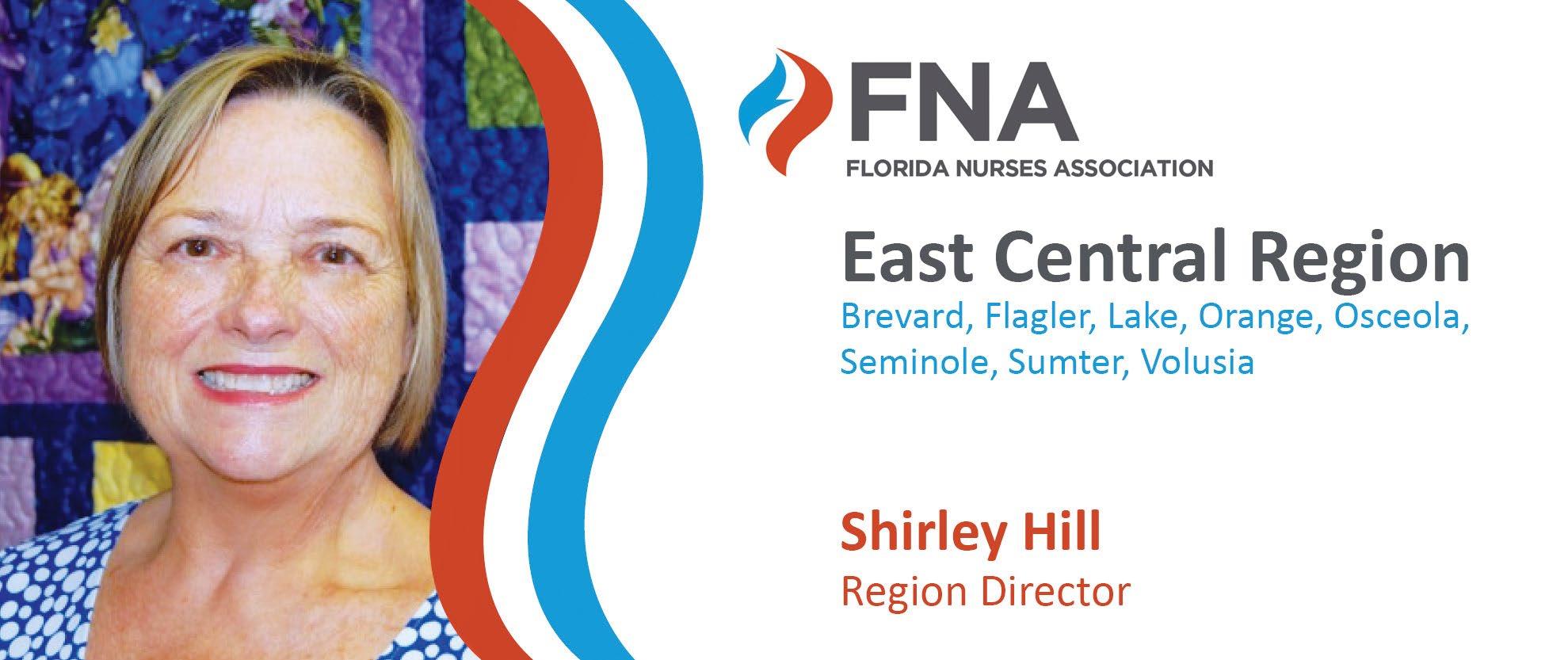
Hello Everyone,
I encourage everyone to attend Membership Assembly because it is very informative and a lot of fun. It’s nice to interact with sponsors and other members. There will be a new director which is announced at Assembly. I’m sure our Region has many qualified applicants. It is a very good learning experience and looks very good on job applications. I’m a firm believer in membership in our profession.
Since I’ve termed out I’m looking forward to a new director. I must say thank you to all of the FNA staff who make our jobs much easier with their support! Thanks to Willa Fuller for her leadership! It has been a pleasure working with our president George Peraza-Smith and everyone on the Board. I do have to say thank you to Kaitlin Scarbary for her help with EVERYTHING she has done for us! It has been such an honor to be a part of this fantastic organization.
Yours in nursing, Shirley Hill
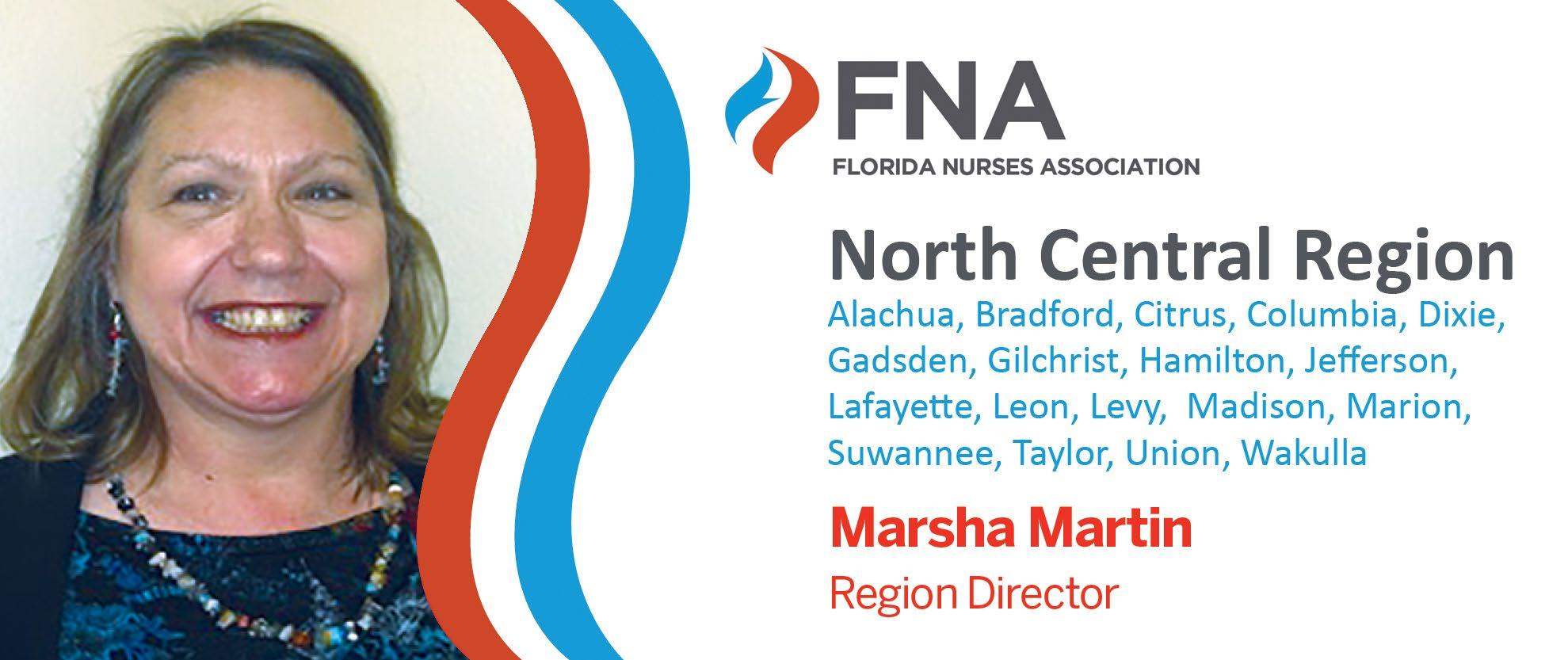
This is my final update as the North Central Florida Regional Director. It has been an interesting time to live through and be a part of. As we move forward in the throes of a continuing healthcare crisis, I hope we can use what we learned in the past year and a half and build on that knowledge as we learn how to not only survive, but thrive as people, nurses, professionals and a profession. I hope in the coming year that you all stay healthy and thrive. I look forward to working with you to help move the Nursing Profession forward.
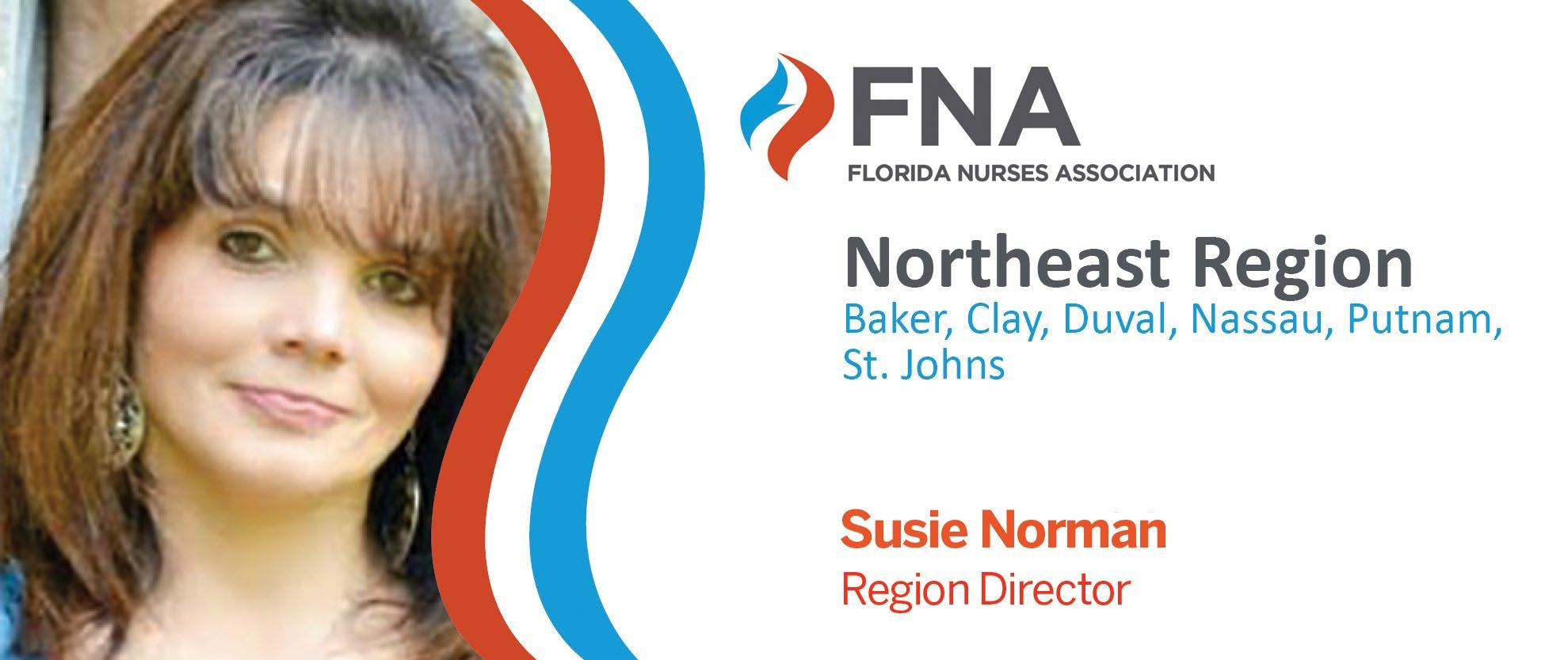
As I am nearing the end of my first term serving as Northeast Region Director, I reflect back on my experience. Needless to say, this has been a challenging time as we have all been impacted by the COVID pandemic resulting in staffing shortages, availability of personal protective equipment (PPE), vaccine role outs, and most importantly the loss of many healthcare workers, patients, family members, and friends.
Serving on the board has provided me with the opportunity to begin forming strong relationships with our local legislators and policy makers, making the needs of our profession known. Legislators want to hear from their constituents and the best way to be heard is in our individual districts. This was a clear message delivered by every legislator that attended our Regional meetings and boot camps. As nurses, we have the responsibility to be well informed and politically engaged as it relates to healthcare policy and to educate our local legislators. In order to do this, we must stay knowledgeable about the laws and regulations that affect our profession. Local, state, and national government gain from our insight on policies and practices that affect the health of our community. As nurses, we have the power to bring about an improved future for healthcare and patients through advocacy but we are stronger in numbers. I highly encourage each of you to become FNA members and to attend the 2021 Membership Assembly being held September 23-25th either in person at the Mission Inn Resort in Howey-in-the-Hills, FL or through the virtual platform (please see FNA website for details). It has been an honor and a privilege to serve on the board and as Regional Director 2019-2021. Please continue to stay safe and thank you for all that you do.
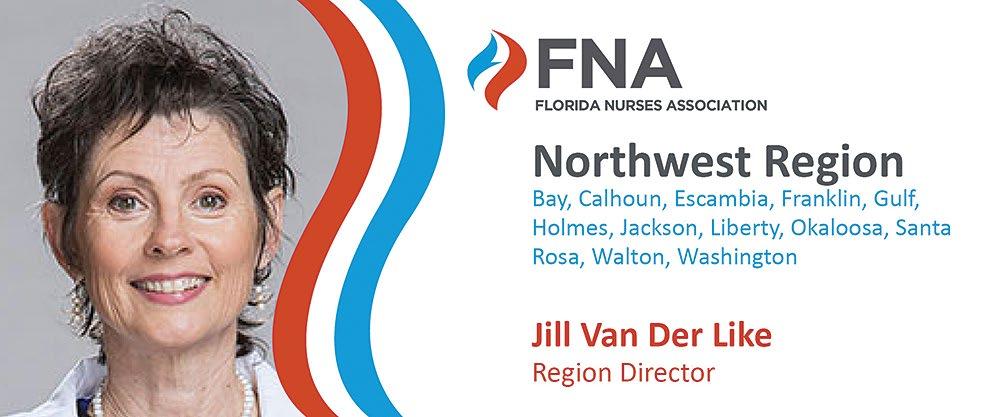

Hello Northwest Region, Time has just evaporated, and my second term ends this September as we gather for our 2021 FNA Membership Assembly. I turn over the position with much joy and gratitude in my heart. Service is a gift to self, and your trust was the best reward of all. Your membership promotes such an important contribution to our nursing care, and it has been a privilege and a pleasure working together for healthcare in our region and beyond. I hope to see you all at our HYBRID Membership Assembly!
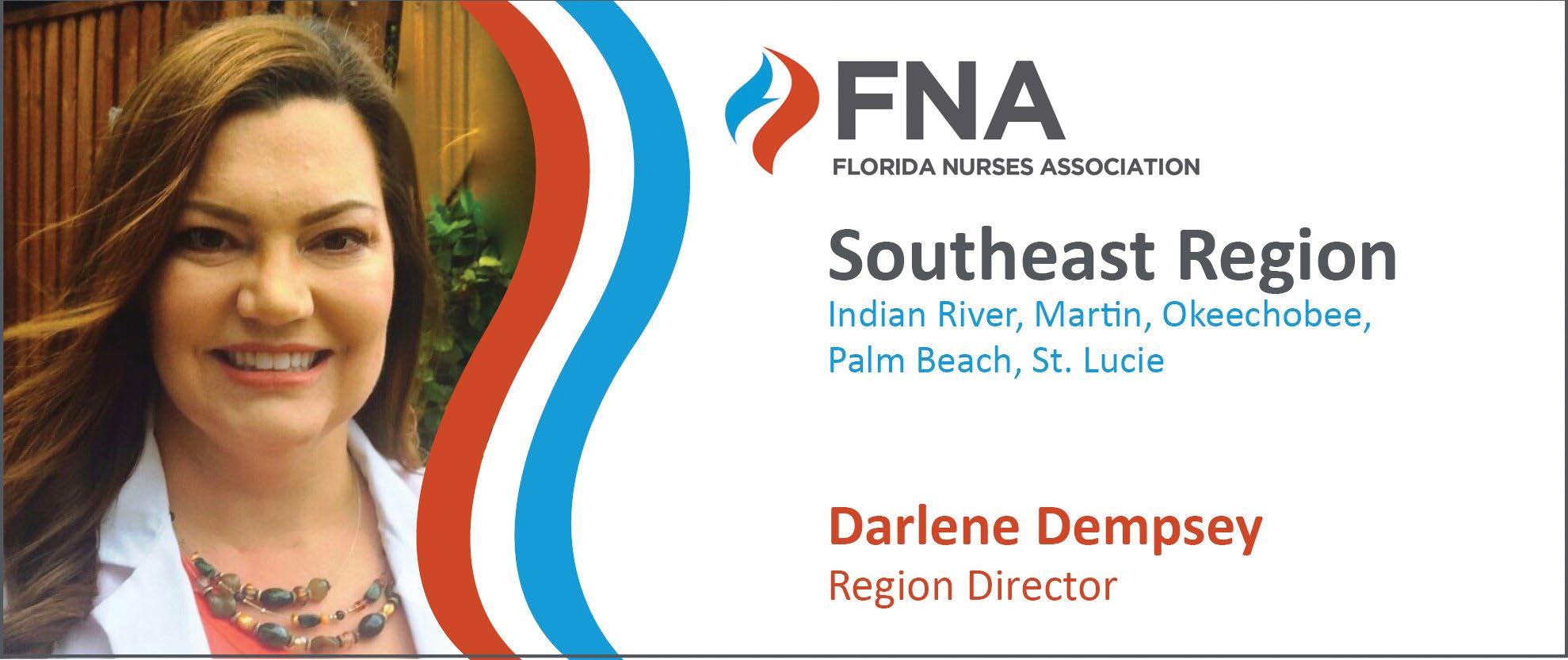
I want to thank those in our region and our state who have given their all during these trying times. It often might have felt as if your efforts were not noticed or appreciated - but it has been felt by so many. Thank you for all who worked as a team and helped each other and your neighbors. Thank you for allowing me to serve the Southeast Region for the last two years.
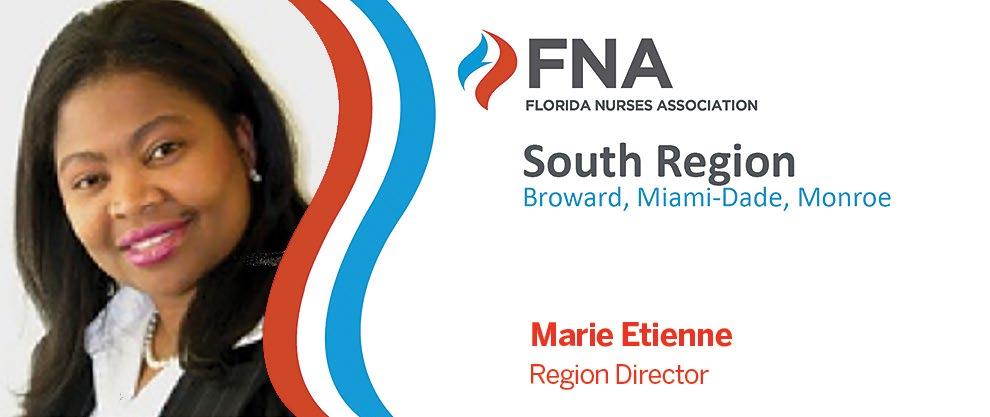
Greetings Fellow Nurses, First and foremost, I would like to thank all the voters who gave me the opportunity and the privilege to serve as the Director for FNA South Region September 2019 - September 2021. These past two years have been quite challenging, yet very impactful due to the amazing support I received from Members, Staff, Administrators, and the outstanding Volunteer Leadership Council Members of South Region which was critical to the success of my tenure. I am grateful for the opportunity to represent South Region during crucial decisions made
Regional News continued on page 6
by the FNA Board of Directors. During my tenure as South Region Director, I was able to participate with South Region members in several activities including the 2019 FNA Membership Assembly, 2020 FNA Advocacy Days, 2020 Virtual FNA Membership Assembly, and 2021 Virtual FNA Advocacy Days. South Region also hosted several events including a Legislative Forum (Oct 2020) and an Advocacy Boot Camp (Jan 2021), both with lawmakers in attendance, to address the best way to communicate with legislators and advocate for the nursing profession. I participated in FNA’s Legislative Action Team to advocate for FNA’s platform and several nursing issues that impact the nursing profession. I also had the honor of serving as the Chair of the Diversity, Equity, and Inclusion Taskforce.
On June 5, 2021, South Region FNA hosted the 11th Annual Symposium and Awards Ceremony virtually with over 120 members in attendance. The event received outstanding feedback due to the stellar Keynote address by Carolyn Jones on her documentary highlighting the nursing profession amidst the challenges we are facing within this era. We had outstanding Guest Panelists who did an amazing job by keeping their presentation lively and engaging. Congratulations to all the South Region 2021 Scholarship Recipients and Awardees. We thank and appreciate the outstanding work of the Leadership Council Members of South Region for making the event quite successful. Special thanks to all the Committees, Sponsors, and all Attendees for their support. We also supported the 7th Annual FNA Nursing Research & Evidence-Based Practice Conference held on Saturday, July 17, 2021, which was very informative, relevant, and timely.
In conclusion, I am eternally grateful to my husband, my children & family, my former Chairperson, Dr. Guillermo (Billy) Valdes and Dr. Tommie Norris from Miami Dade College Benjamín León School of Nursing for their enormous support and my colleagues who stood and supported me all the way during my two-year term as Director of South Region FNA. Thank you FNA President, Dr. George Peraza-Smith, for your outstanding, caring, and compassionate leadership along with the phenomenal Board of Directors and amazing staff of FNA for all you do! Save the Date for the 12th Annual Symposium & Awards – Saturday, April 2, 2022 at Gulfstream Park & Theater. If you are not a member of FNA, I encourage you to join today or renew your commitment to serve by paying your
membership dues. You can visit the FNA website at www.floridanurse.org. For additional information and updates I can be reached at metienne777@icloud. com. I ask you to consider joining and serving as a member of the amazing Leadership Council of South Region. I am running as the President-Elect for FNA to represent and be a voice for all nurses. Please remain safe by adhering to CDC guidelines on COVID-19 prevention, wear your mask, wash your hands, practice social distancing, and take time for self-care. Don’t forget to stay engaged with FNA and ANA, be informed, get vaccinated, and stay safe!
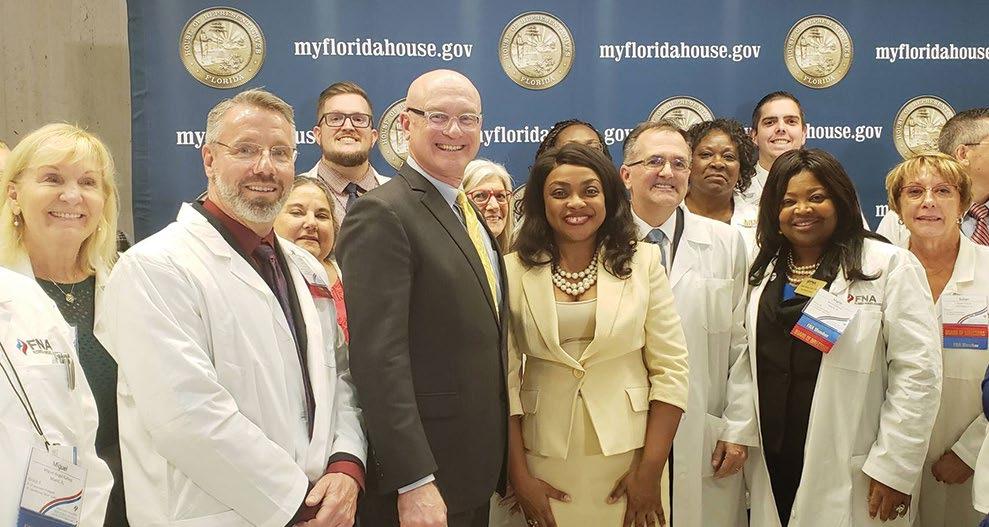
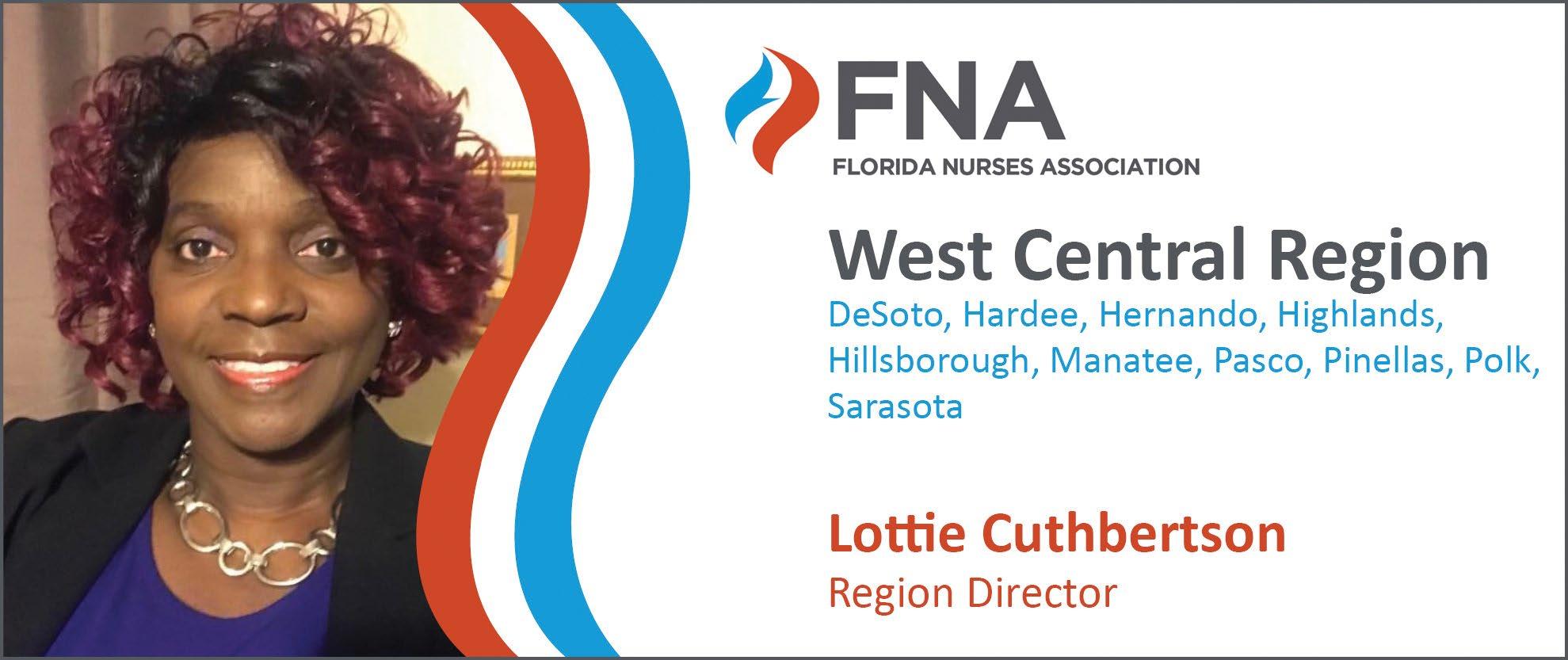
Hello WCEN Region members, We got off to a great start in 2019! We started the year with great representation of the West Central region members at the January 2020 Advocacy days. We met a few times to talk about our year ahead. It was nice to get to know some of you, others I knew from our world of nursing. The surge of Covid-19 pushed us to cancel a major event in April 2020. I want to again thank everyone for being willing to take part in the activities of FNA West Central Region. You all are appreciated. We continued to move forward. We had a meeting to check on the wellness of one another. This allowed us to talk with our nursing hats off and discuss self-care. This meeting touched the hearts of many. I noticed shortly after other
groups outside of FNA incorporated an event similar to our self-care event. This is wonderful to see. As you know, FNA WCEN has some brilliant leaders with unique ideas. The collaboration FNA WCEN with NOVA Southeastern University during Nurse practitioner week was another great event, which offered CEU’s for APRNs and Nurses.
I encourage you all to continue to be involved with FNA, get involved on a committee or other activities. Be on the lookout for more information on WCEN Region’s legislative forum, tentatively in October 2021. I have decided not to continue as the WCEN Region Director. I look forward to assisting with events and participating on committees. This is not a goodbye. I hope to see you soon on zoom or in person in the coming months.
All the Best!!
Lottie Cuthbertson West Central Region Director
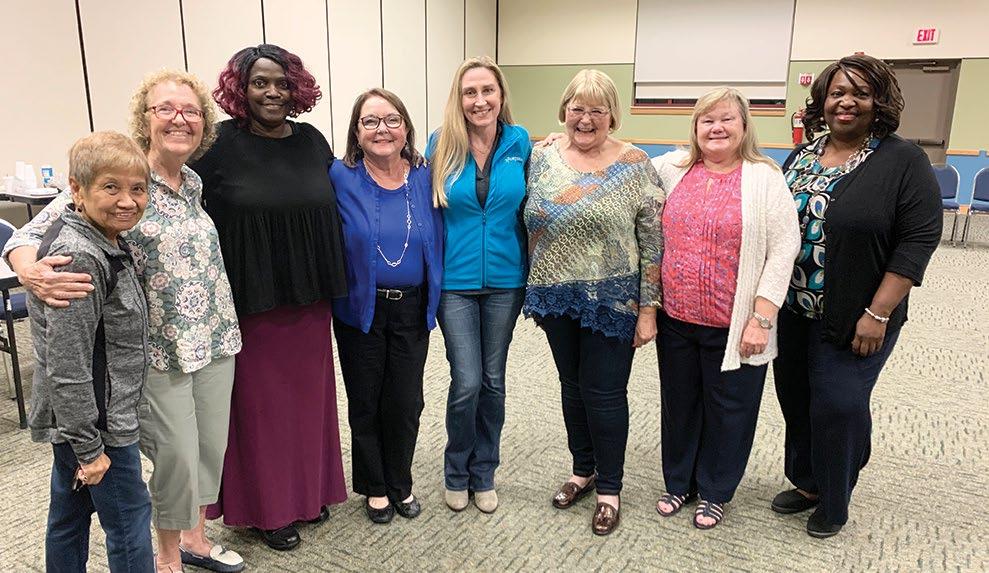
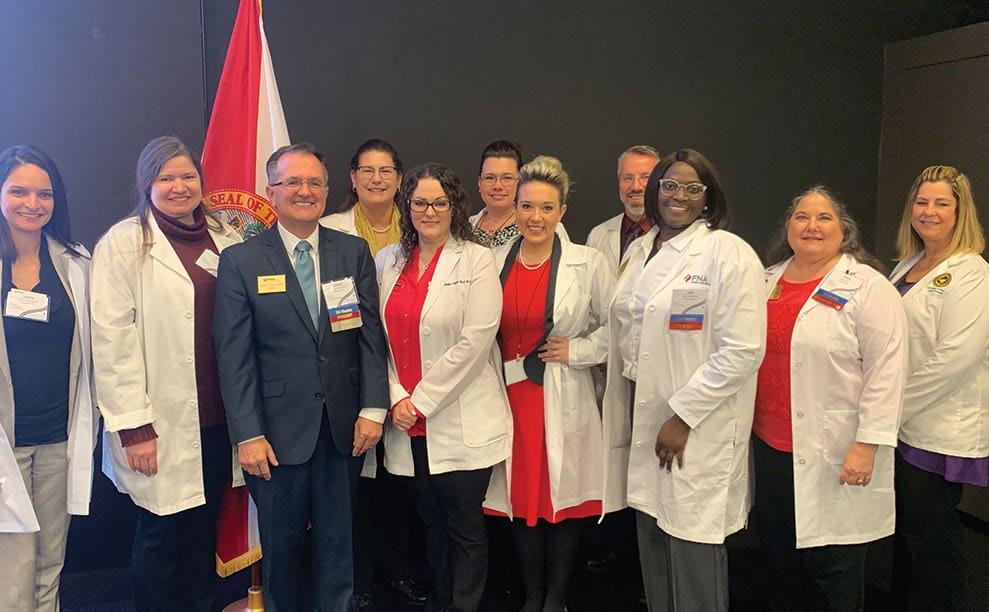




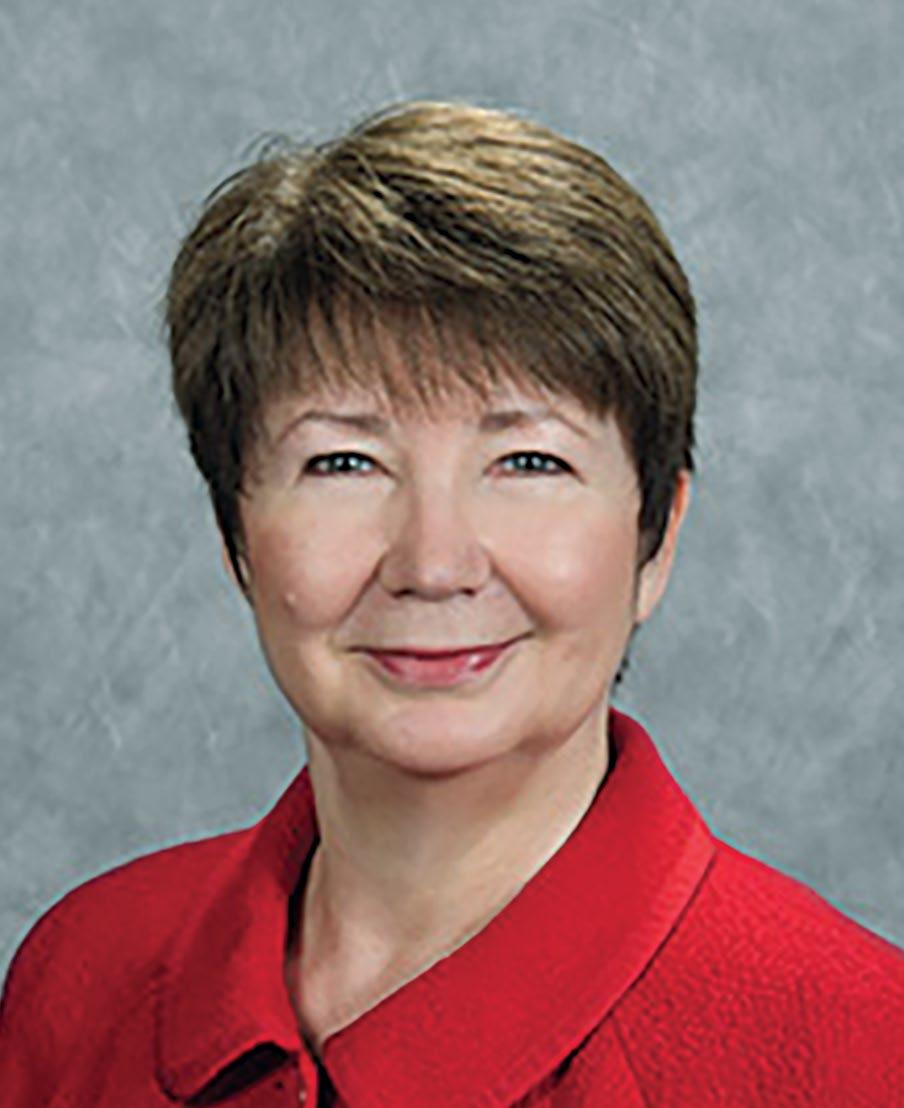 Keyna Cory
Keyna Cory
The Florida 2021 Legislative Session ended on April 30 within the allotted 60 days as required by the Florida Constitution. Now is the time to begin preparing for the 2022 session. Interim committee meetings will be held in Tallahassee starting in September and will continue through the first week of December. The 2022 Session will begin on January 11. There are many ways you can ensure another successful session! First, make sure you know your state legislators. Not sure? Moved to a new area? No problem!
The FNA website can help you find your state representative and state senator. Go to https://www. floridanurse.org/page/FindMyLegislator#/ and enter your address. Both state and federal legislators will appear. However, we are only concerned with you contacting YOUR state representatives and senators ... the people on your voter registration card.
Next step - contact them. Start with an email introducing yourself. Let the legislator know you are a member of FNA and that you live in their district. Thank them for funding the Florida Center for Nursing. Ask them to use you as a resource when it comes to nursing and health issues. Make sure to copy their staff.
Another opportunity to meet with your legislator is at your local Legislative Delegation meeting. FNA will post notices to let you know when Legislative Delegation meetings will be held. These meetings
are held in every county across the state. It is a time for the legislators to meet with their constituents to learn about local issues. Attend your local Legislative Delegation Meeting. It’s a great time to say hello to your legislator and their staff members.
Make sure to have your state representative and state senator’s birthday on your calendar! Send them an email wishing them a Happy Birthday!
Follow your legislator on social media. Only post FNA information and positive comments … this is not the place to complain about a legislator or political party! A few negative comments to a key legislator could derail FNA’s entire legislative program.
Finally, join the FNA Legislative Action Team. Your participation can make a positive impact for FNA and your profession. Go to https://www.floridanurse.org/ page/ActionTeamApp to apply.
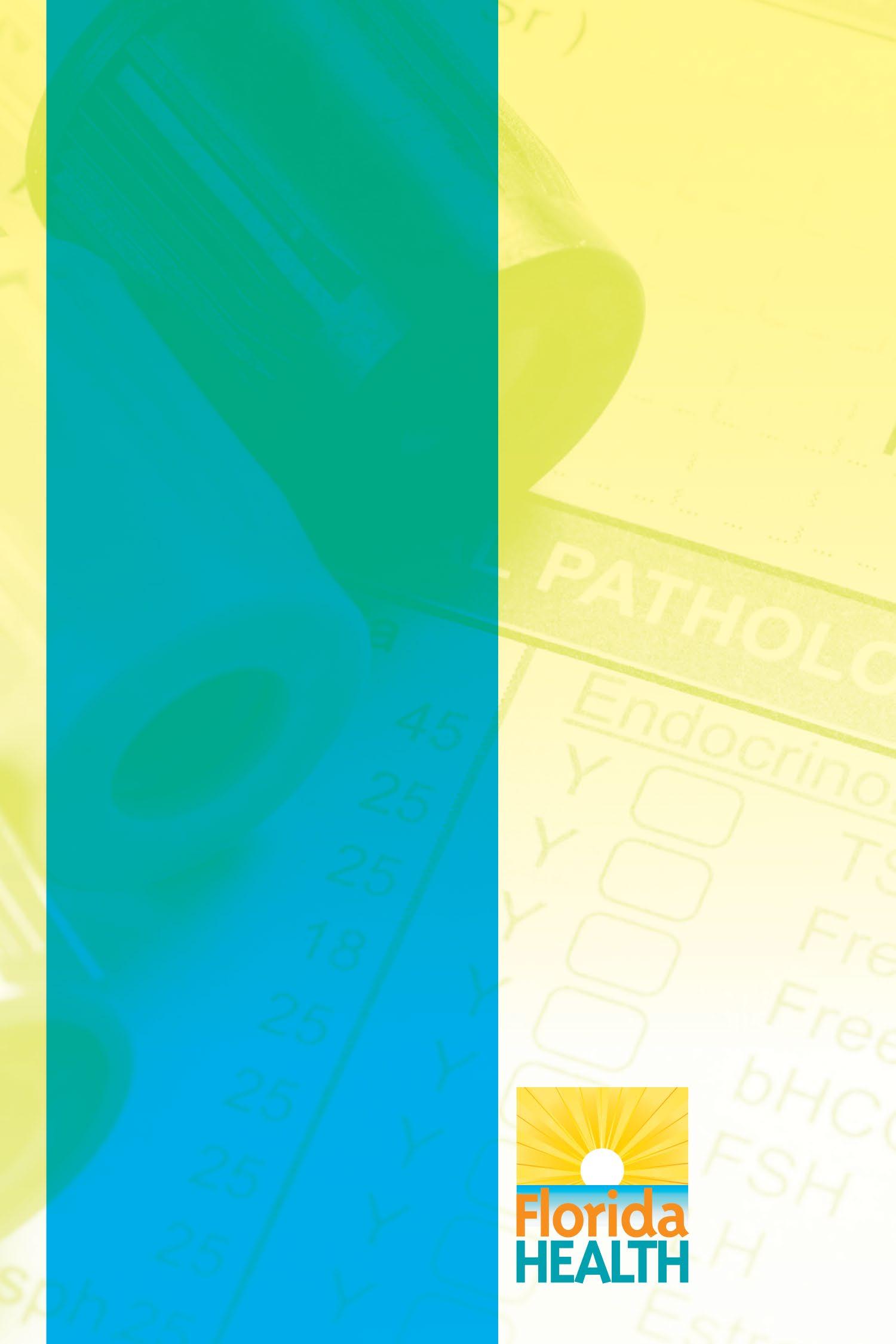
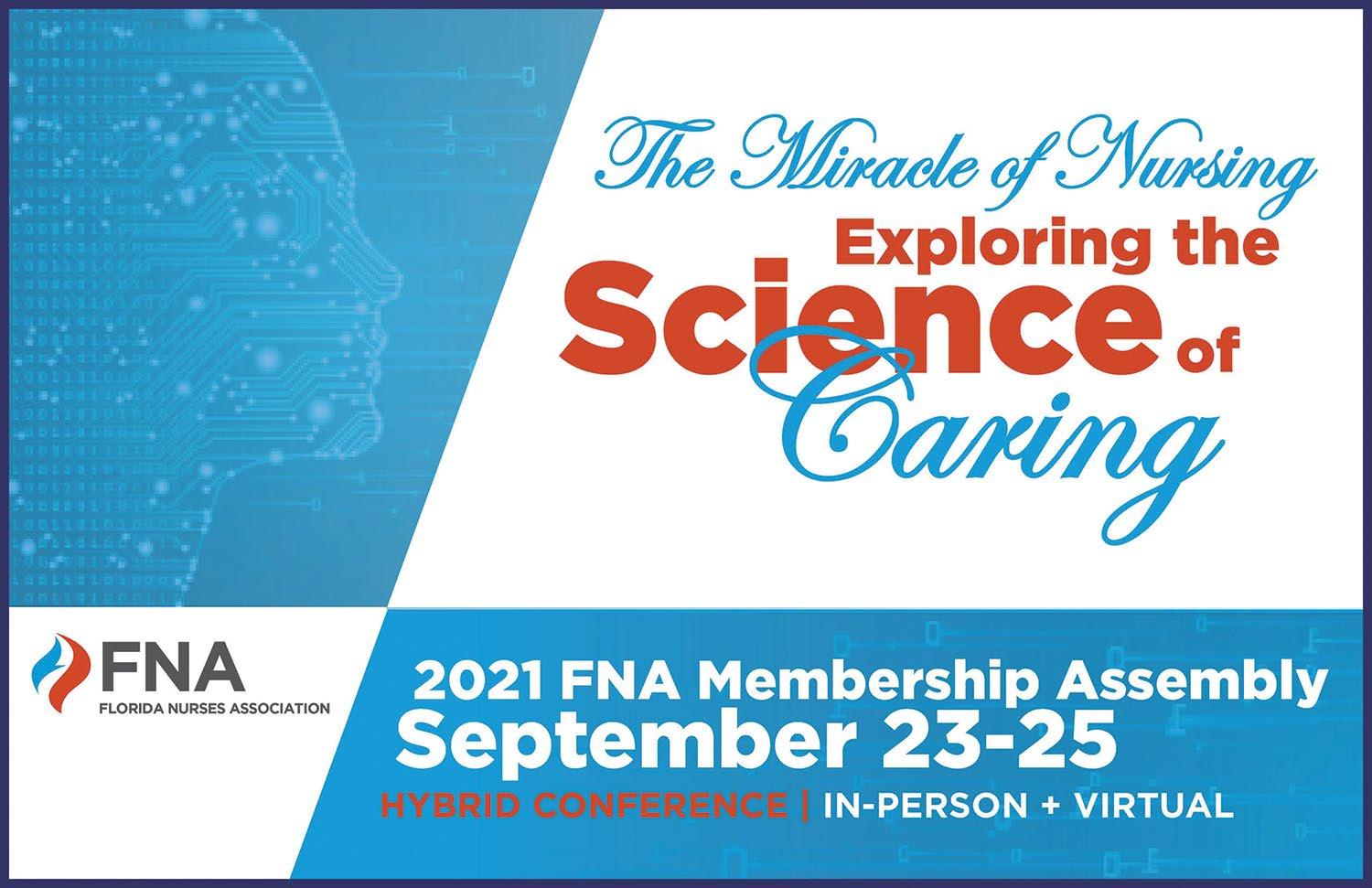
September 23-25, 2021
Register now to attend the 2021 FNA Membership Assembly! This year we will be exploring the science of caring by highlighting the exemplary courage, extraordinary knowledge and skill, and immeasurable compassion and creativity that nurses have exhibited the past year-and-a-half. We have an incredible lineup of diverse speakers who will be sharing insights into nursing practice and education. There will be 15 presentations over the course of three days, all of which will be recorded and made available on-demand. You don’t want to miss this opportunity to hear from your nursing colleagues making an impact around the state. Register at www.floridanurse.org/MembershipAssembly-2021
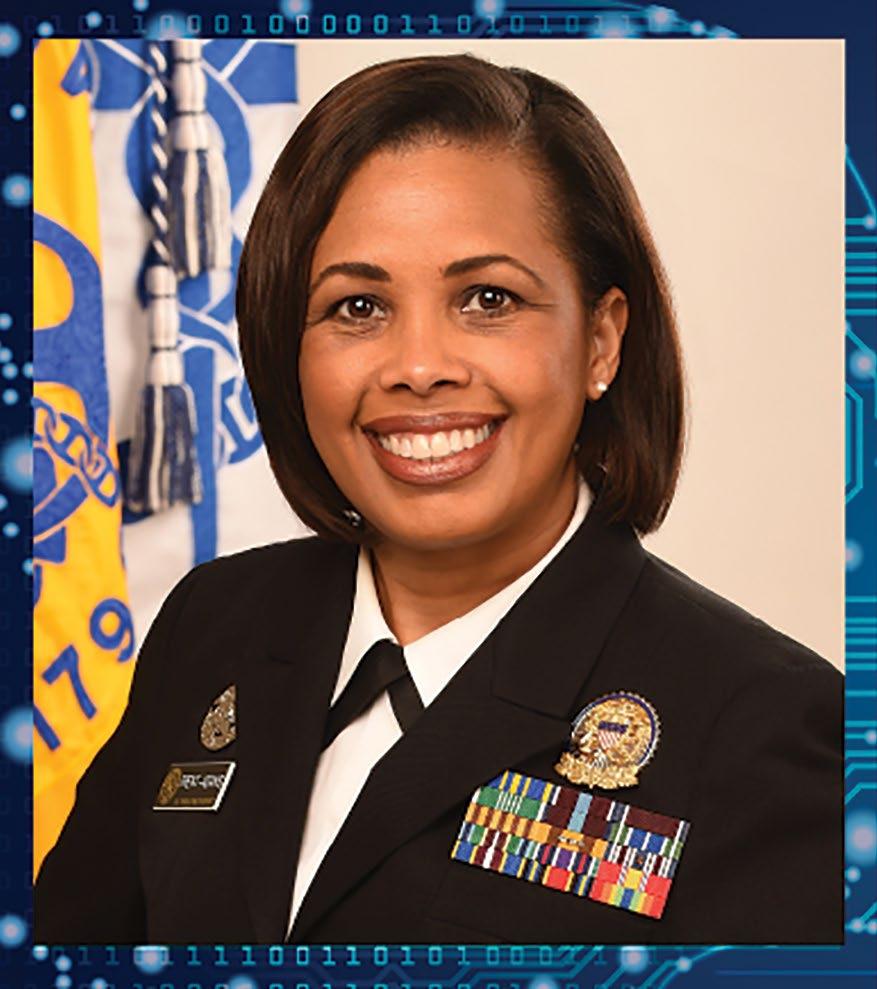
Rear Admiral Sylvia Trent-Adams, PhD, RN, FAAN
Having served as the US Deputy Surgeon General from October 2015 to January 2019 and the Principle Deputy Assistant Secretary for Health from January 2019 to August 2020, RADM Trent-Adams is an exemplary figure showcasing the leadership opportunities that exist for nurses. The field of nursing is constantly evolving. It is important that we examine how changing demographics within the profession can help steer the future of nursing. This interactive presentation will take a look at how nurses can best position themselves to have a seat at the table and have their voices heard.
Deborah Taffe, PhD, MSNeD, RN | Barbara Blythe Lovell-Martin, PhD, MS, RN | Fay Mason, DNP, RN

The new challenge in higher education and health care settings is the challenge of having a workforce that resembles the diversity of the nation in order to effectively care for the needs of diverse populations. At the base of nursing is caring for all using cultural proficiency. To meet these challenges, nurses need to have a working knowledge of diversity, inclusion, and equity. How do we navigate diversity, inclusion, and equity in the workplace?

Ilene Gottlieb, RN, CHTP, CHP, CMI, CQP
The key to experiencing true happiness, success, overall wellbeing and inner peace in your professional and personal life begins and ends with a conscious connection to your heart...period! During these challenging times, self-care is a necessity in order to maintain overall health and wellbeing. Conscious heart connection is a simple and portable tool that assists us in releasing stress and promoting balance in all areas of our lives, from the holistic perspective. Join Ilene as she shares the benefits of conscious heart connection as the key to your success in powerfully being present for your patients, your colleagues and manifesting your heart’s desires.
 John Berry, Director of Labor Relations
John Berry, Director of Labor Relations
We often get calls from members for assistance related to patient confidentiality. While all health care professionals should be well-versed in nuances of what is and isn’t permissible under the Health Insurance Portability and Accountability Act more commonly known as HIPAA, there are some areas where mistakes can be made, some which can be automatic grounds for termination. It’s important to remain vigilant, be careful, and follow the privacy rules.
Sample Violation #1 – Going into a patient file that is not assigned to you. This violation is automatically grounds for termination. If you are not assigned to a patient, you should not be accessing their record.
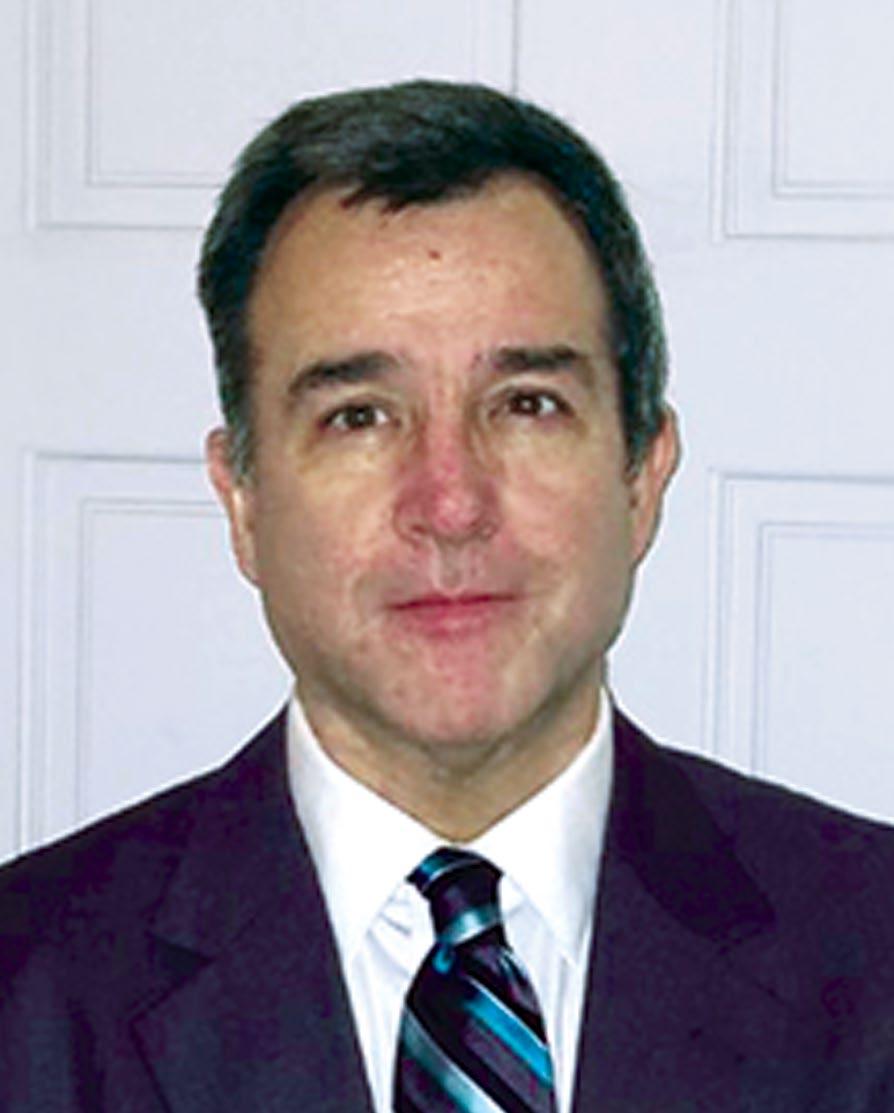
Sample Violation #2 – Giving the wrong discharge paperwork to a patient. Always double-check that you are handing the correct paperwork to the patient you are discharging. Handing someone another patient’s discharge paperwork with the patient’s personal information can result in termination.
Background – The Health Insurance Portability and Accountability Act of 1996 was signed into law by President Bill Clinton. HIPAA is a federal law that required the creation of national standards to protect sensitive information from being disclosed without the patient’s consent or knowledge.
The US Department of Health and Human Services (HHS) issued the HIPAA Privacy Rule to implement the requirements of HIPAA. The HIPAA Security Rule protects a subset of information covered by the Privacy Rule. The Privacy Rule addresses the use and disclosure of an individual’s health information, which is also referred to as PHI (Protected Health Information) by entities subject to the Privacy Rule. This rule also contains someone’s rights pertaining to control of how their information can be used. This rule ensures that health information is protected while letting that information flow as needed to provide and promote quality health care and to protect the public’s health and well-being.
HIPAA does not protect all health care information, nor does it apply to every person who may see or use health information. HIPAA only applies to covered entities and their business associates. Those covered entities include: business associates, most health care providers, including doctors, clinics, hospitals, nursing homes, pharmacies, psychologists, dentists, chiropractors, health insurance companies and health plans. Exception to the health plans: A group health plan with fewer than 50 participants that is administered solely by the employer that established and maintains the plan is not a covered entity. A non-medical person can’t violate HIPAA, and can’t be prosecuted for it. There are permitted uses and disclosures of protected health information without an individual’s authorization or permission, they are referred to as the 12 national priority purposes:
1) When required by law.
2) Public Health Activities
3) Victims of abuse or neglect or domestic violence
4) Health oversight activities
5) Judicial and administrative proceedings
6) Law enforcement
7) Functions (such as identification) concerning deceased persons
8) Cadaveric organ, eye, or tissue donation
9) Research, under certain conditions
10) To prevent or lessen a serious threat to health or safety
11) Essential government functions
12) Workers Compensation
While the Privacy Rule safely protects the protected health information (PHI), the Security Rule protects a subset of information covered by the Privacy Rule. This subset of all individually identifiable health information a covered entity creates, receives, maintains, or transmits in electronic form. This information is called “electronic protected health information” (e-PHI). The Security Rule does not apply to PHI transmitted orally or in writing. To comply with the HIPAA Security Rule, all covered entities must do the following:
1) Ensure the confidentially, integrity, and availability of all electronic protected health information.
2) Detect and safeguard against anticipated threats to the security of the information.
3) Protect against anticipated impermissible uses or disclosures.
4) Certify compliance by their workforce.
The covered entities should rely on professional ethics and best judgement when considering requests for theses permissive uses and disclosures. The Health and Human Service HHS Office for Civil Rights enforces HIPAA rules, and all complaints should be reported to that office. HIPAA violations may result in civil monetary or criminal penalties.
Our goal with this information is to provide information that will help you to be knowledgeable and safe in your employment setting. There is a significant amount of misinformation and misconceptions about HIPAA and we want to make sure you are well-informed.
Dear HCP Bargaining Unit Members,
We know that this past year has been a challenging time as you work each day to protect the lives of people throughout the State. We are grateful for all your efforts!
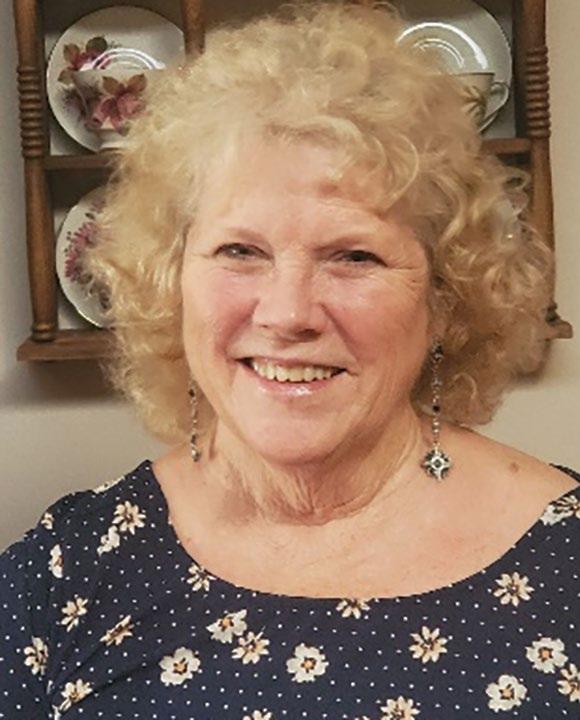
Your FNA Bargaining Unit Team again negotiated with the Governor and lobbied the Legislature to secure a wage increase. Although we were not able to get the pay increase for this year, we will continue to fight for an increase in our salaries. This year there were renewed (and more vigorous) efforts within the Legislature to weaken public sector unions by requiring members. Those proposals are brought forward because the political leadership of the State does not wish to have employee input into their wages, hours and terms of employment. They desire to make unilateral determinations as to the conditions within which you work. These efforts will not stop. For the FNA to continue to work on your behalf we need your active membership and participation. Increasing our membership is essential. The state needs to see that our professional health care employees believe in their Union and their right to collectively bargain with their employer. Unions that succeed have a high percentage of membership within their ranks which sends a message of political strength and funds a treasury that can support aggressive lobbying and legal action when needed. There are over 2,500 persons on the rolls of our unit – a sizable force if united through membership. We could have meaningful political influence and could garner more legislative support with a significant increase in our membership numbers.
If already a member – stay loyal to the FNA; if not now a member, JOIN NOW (!) and then take the next step by encouraging your co-workers to join too! Our strength is in our numbers!
Be sure to vote on the contract items in this package – and on behalf of everyone in the Florida Nurses Association, “THANK YOU” for your continued dedication and hard work.
In Solidarity,
Deborah Hogan, RN,BSN, MPH
President FNA Health Care Professionals Bargaining Unit

FL.
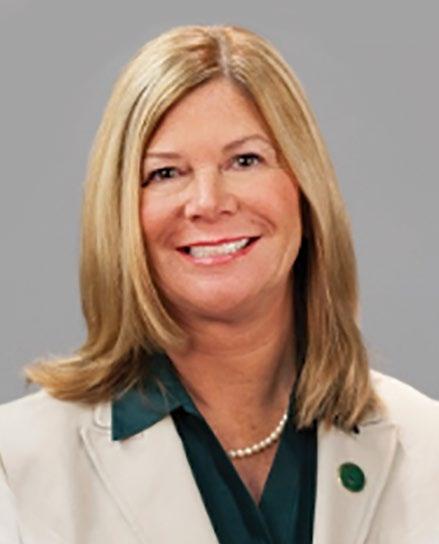
Nurses are actively serving patients and families on the frontline. Caring is at the core of our nursing profession and it will never be replaced with technology. Improving healthcare operations cannot occur by continuing to add technology layers that require nurses to collect more data and spend precious clinical time documenting. We need to change the mindset and nurses need to think differently about the care they provide and “work smarter not harder.” Who better to lead these efforts in healthcare operations than nurse leaders? Nurses best understand how to integrate existing EMR systems and additional technology advancements into their day-to-day work. Critical data needs to be readily available to guide the nurse providing real-time insight into the care they will deliver. These data can address issues before they become problems that may impact system and patient outcomes.
Nurses are educated to use the nursing process to guide their care. So, it makes good sense that the nurse would lead the efforts to intentionally align people, processes, and technology to deliver high quality care. Creating workflows that focus on good-design, intelligent workflows and providing critical/essential data will allow optimal outcomes to be achieved.
The Time is Now!
The AHA describes a strategic fork in the road for hospitals and health systems across the country as they contemplate how to respond to the wave of new health care market entrants that are testing their traditional business models and operational tactics as never before.
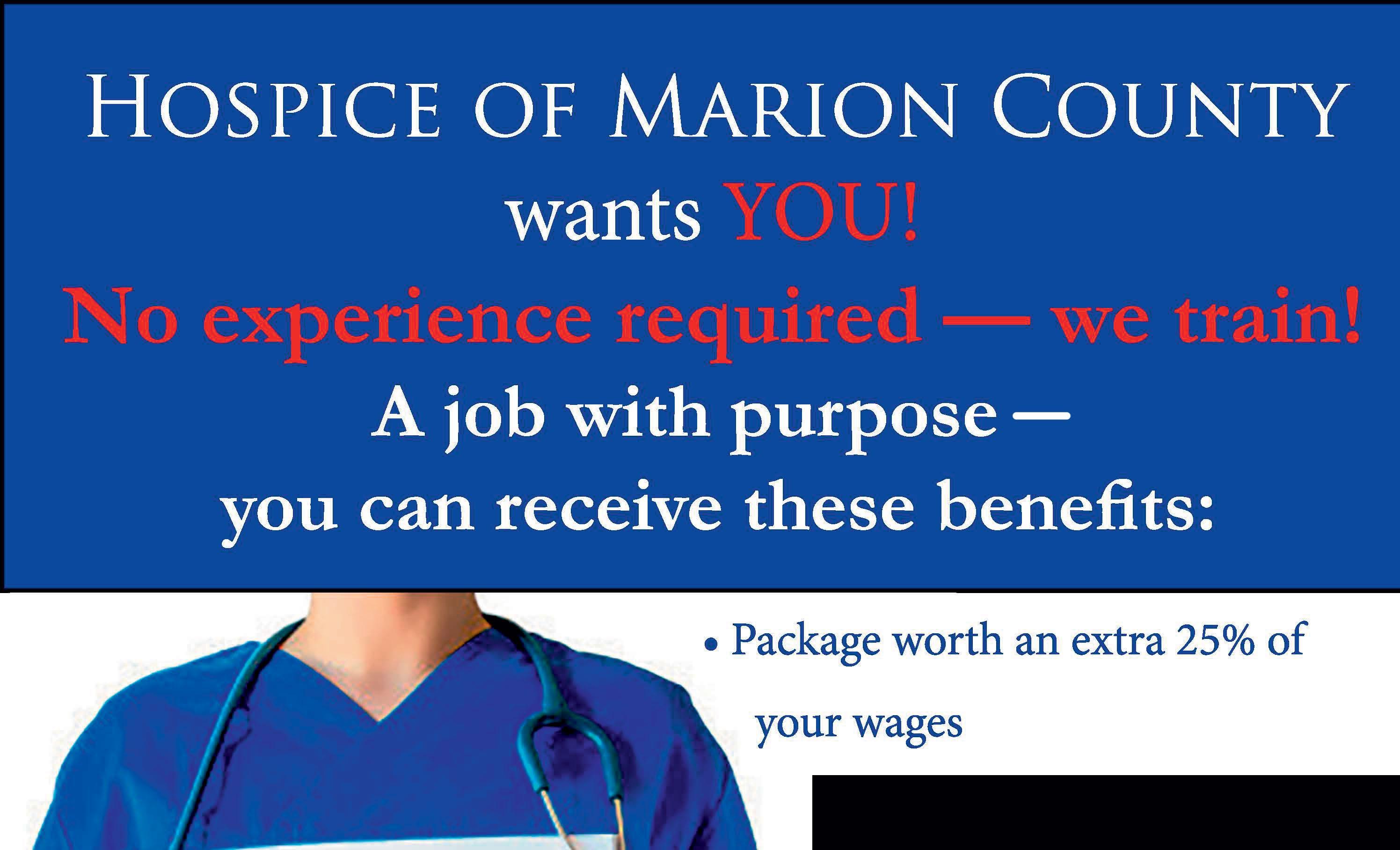
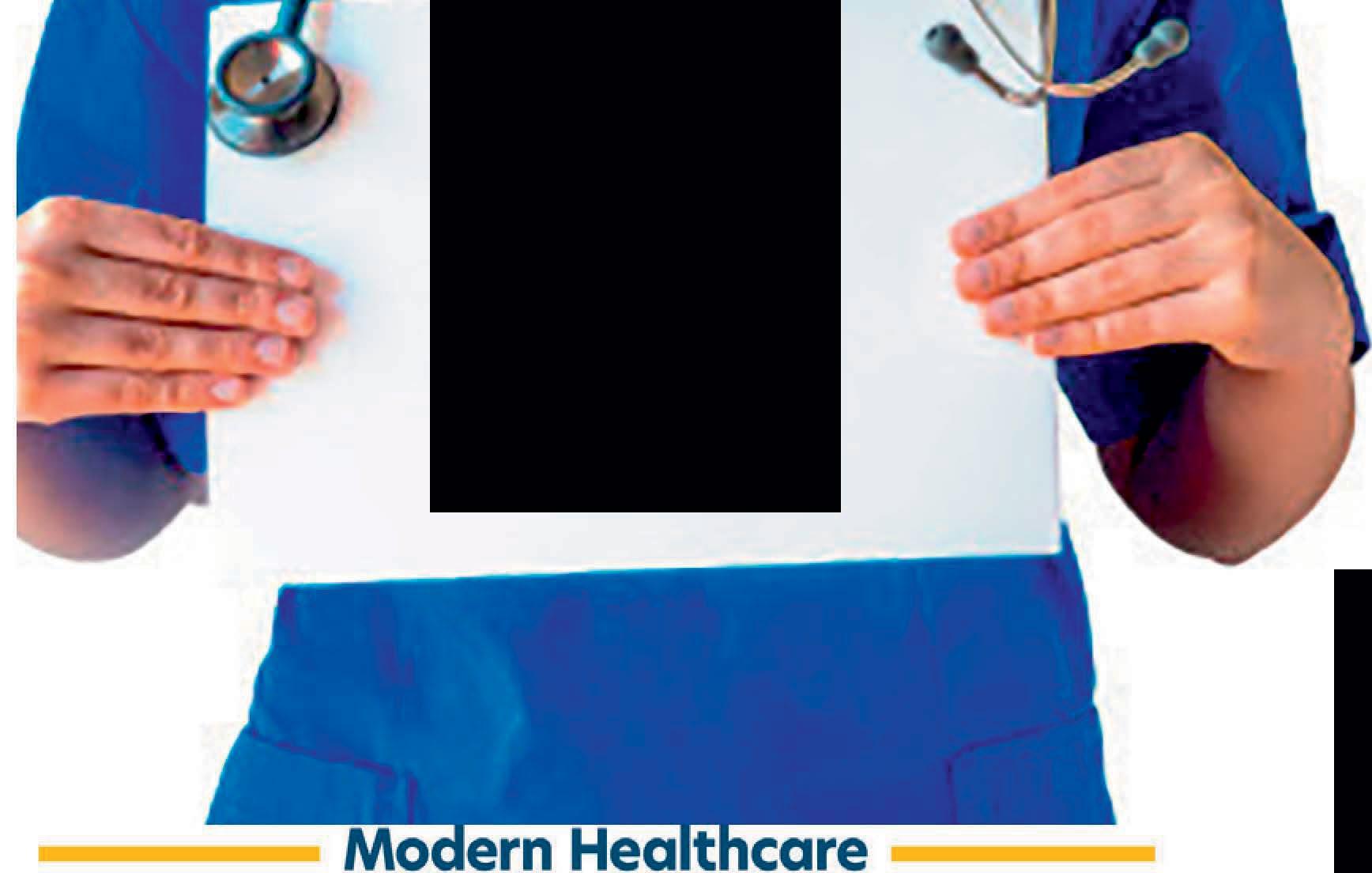
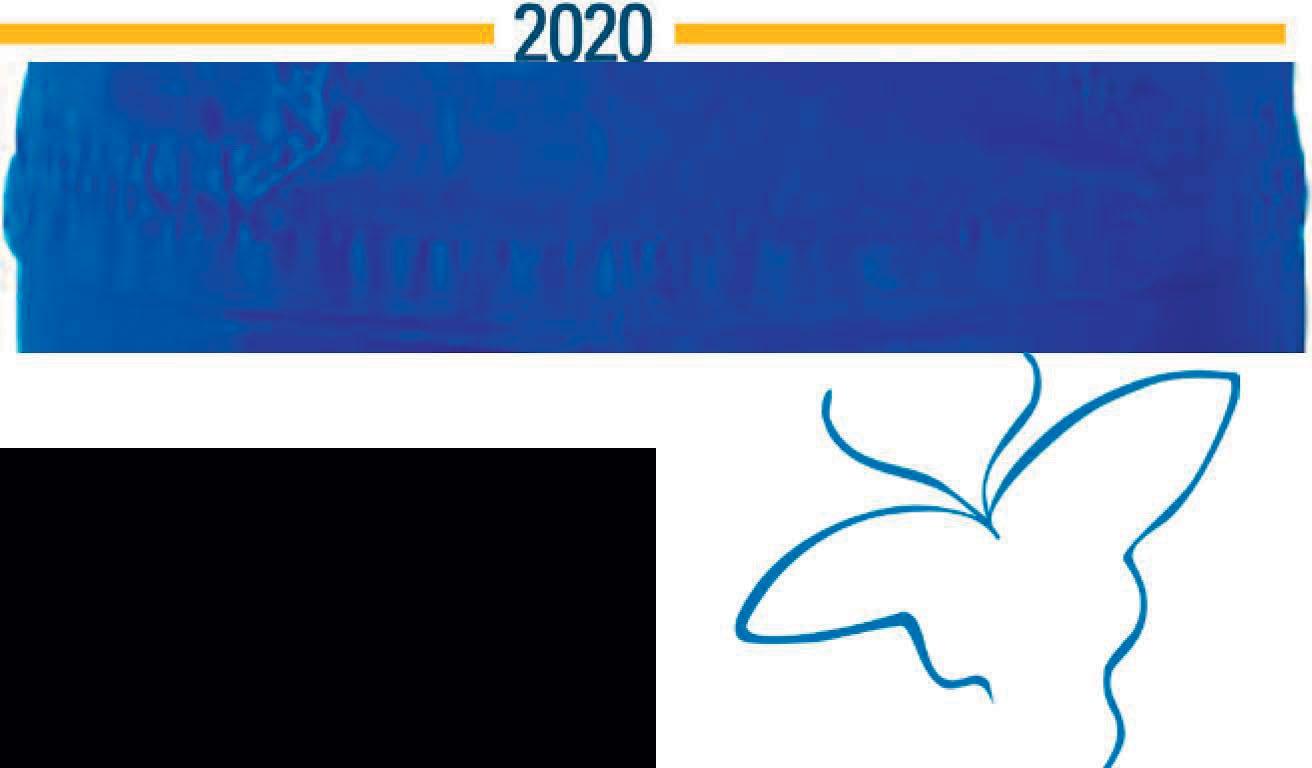

• Nurses and CNAs earn up to 25% in shift differentials
• Full coverage at no cost ( + vision & dental)
•Long- and short-term disability coverage
• Eight paid holidays
• Up to 21 days paid vacation days your 1st year
• Plus sign-on bonuses up to $2,500
$3.7 trillion is being spent on annual health care and health care represents nearly 20 percent of the country’s Gross Domestic Product. Addressing inefficiencies in the system is critical. They’re not necessarily in it to control costs, expand access or improve quality. But, if they can do any or all of those three things, the new market entrants and their owners, shareholders and investors will benefit financially.1
The AHA describe a hospital or health system whose top executives are ready, willing and able to make the changes necessary to lead disruptive innovations in their markets, because they see themselves as advocates for their patients and communities.1 Where is nursing in these efforts? They want their hospitals and health systems to remain relevant because their patients and their communities need them to remain relevant.
I challenge all of us to become more involved and to consider leading the disruptive innovation in our health systems and hospitals. We have a generation of digital savvy nurses that are conversant with digital technologies and we are the frontline providers who keeps the patient in the center of care, we also understand systems thinking, so let’s join forces and lead these efforts.
Reference
1https://www.aha.org/system/files/media/file/2019/03/Leading_the_Charge_for_Disruptive_ Innovation_11-29.pdf
Dr. Jordan is the Sr. Associate Dean of Assessment, Evaluation, & Accreditation and an Associate Professor at the University of South Florida College of Nursing. She previously was the Associate Director of the Johns Hopkins University Global mHealth Initiative (JHU GmI) and served as a content expert and program evaluator for the first national mobile health program titled “Text4baby.”

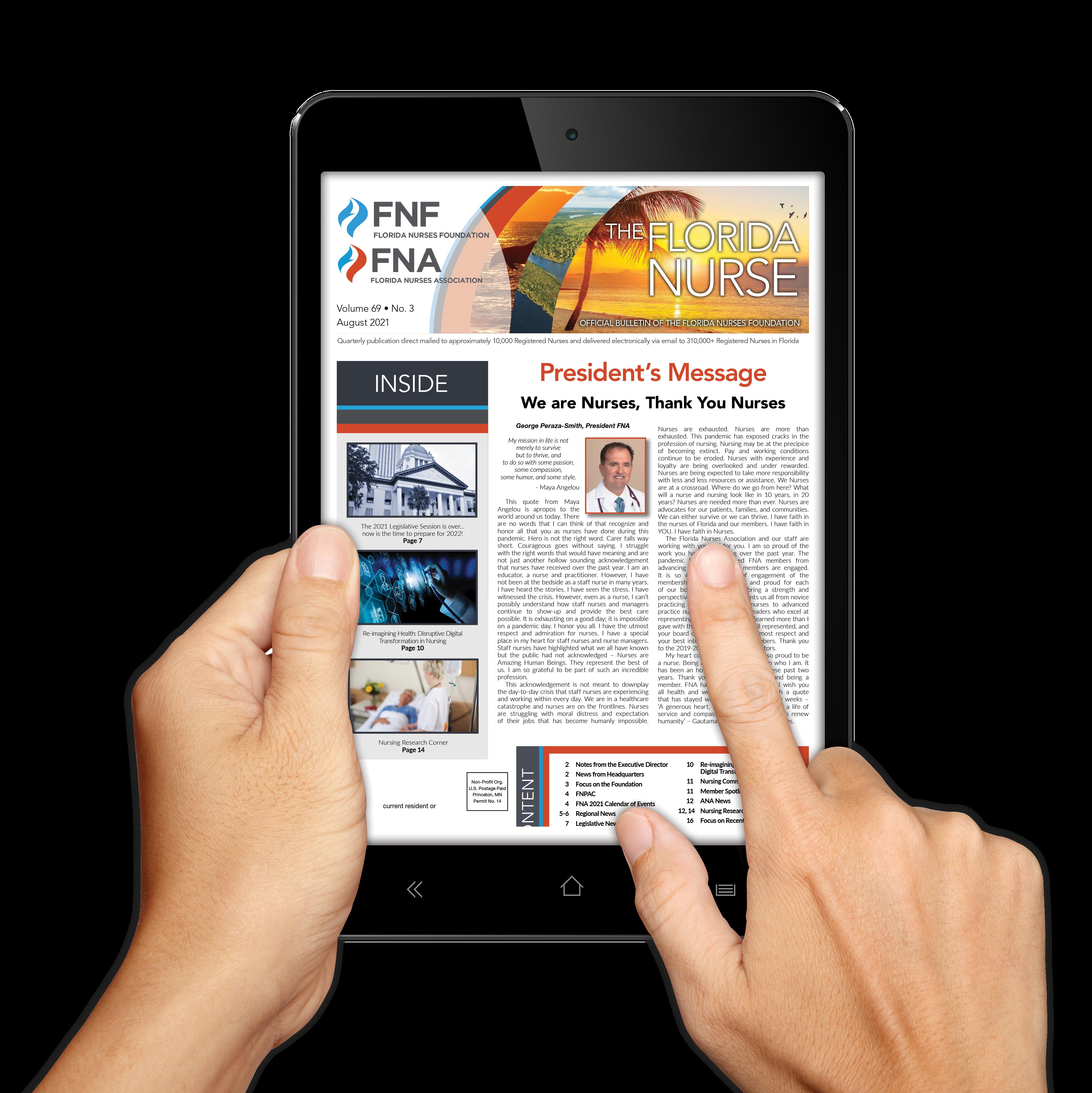
Nurses play a key role in the health of all Americans. It is vital to recruit their unique skills, knowledge, and dedication to address health inequities and improve the health and well-being for all. As such, the new Nursing Action Coalition of Florida (NACFL) is forming. The Transition Team is made up of a diverse group of stakeholders, chartered to provide leadership in advancing the nursing profession so that Floridians can access safe, high quality health care.
History of the Florida Action Coalition
In 2011, the Florida Action Coalition (FLAC) was founded and joined other state coalitions in advancing the Future of Nursing: Campaign for Action, a collaboration created by the Robert Wood Johnson Foundation (RWJ) and the AARP Foundation. The purpose of the Campaign for Action was to guide implementation of the recommendations of the Institute of Medicine’s (IOM) landmark report, The Future of Nursing: Leading Change, Advancing Health In early 2020, the Florida Center for Nursing and the Florida Action Coalition closed.
In May 2021 the National Academy of Medicine published The Future of Nursing 2020-2030: Charting a Path to Achieve Health Equity. The new report is focused on how nurses can work to reduce health disparities and promote equity, while keeping costs at bay, utilizing technology, and maintaining patient and family-focused care into 2030. The committee was tasked by the Robert Wood Johnson Foundation to chart a path for the nursing profession to help
our nation create a culture of health, reduce health disparities, and improve the health and well-being of the U.S. population in the 21st century. The primary goal is the achievement of health equity in the United States built on strengthened nursing capacity and expertise. Nurses have managed multiple roles in both acute and community care and public health settings and know that nurses can influence both medical and social factors that affect health outcomes, health equity, and health care equity. This expertise will help us build strength to manage the future of nursing.
The committee identified several key areas for strengthening the nursing profession to help meet the challenges of the decade ahead. These areas include the nursing workforce, leadership, nursing education, nurse well-being, and emergency preparedness and response, as well as responsibilities of nursing with respect to structural and individual determinants of health.
We know that the demand for more nurses will continue in Florida following the current pandemic. Working together with both business and nursing organizations we can make a difference in strengthening nursing capacity and expertise.
The Nursing Action Coalition of Florida Transition Team is currently seeking nursing and non-nursing partners as we prepare to submit our charter and application to the Center to Champion Nursing in America.
To join the NACFL team or for additional information please contact Janice Adams, DNP, MPA, RN at jadams7264@gmail.com

Lucie Dlugasch, PhD, APRN was awarded the Florida State Award for Excellence as a Nurse Practitioner by the American Association of Nurse Practitioners. Dr. Dlugasch is an associate clinical professor and the adult-gerontology program leader at Florida International University.
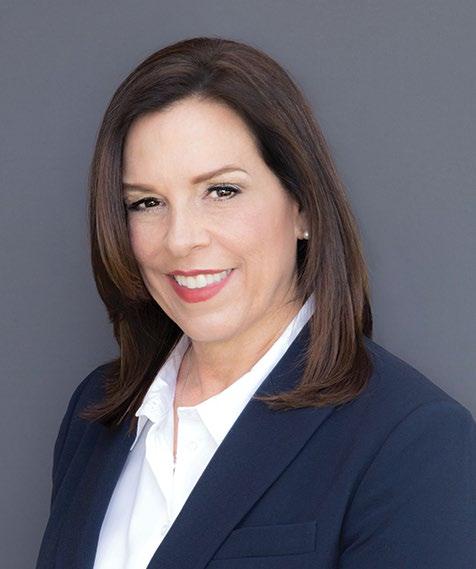
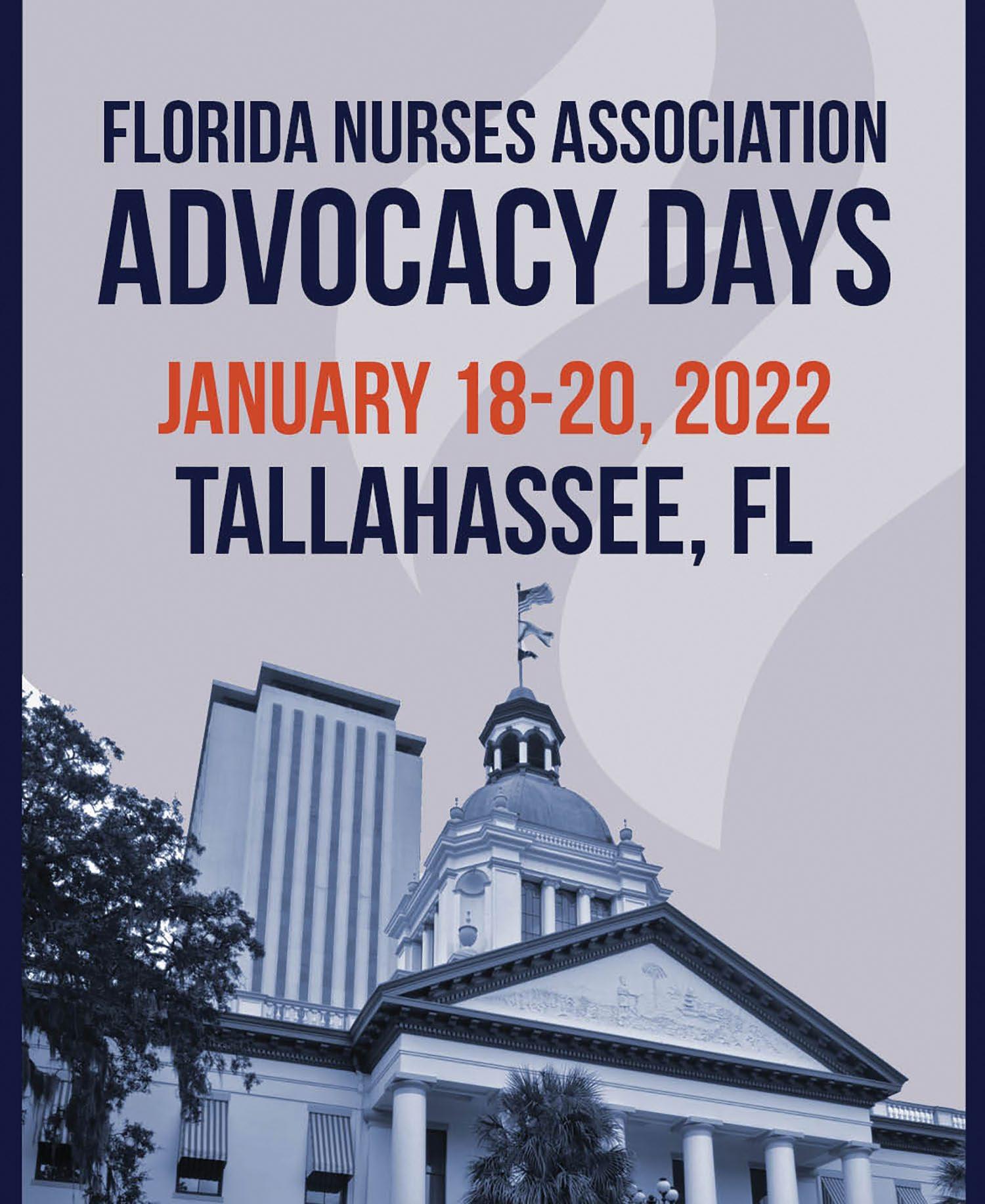

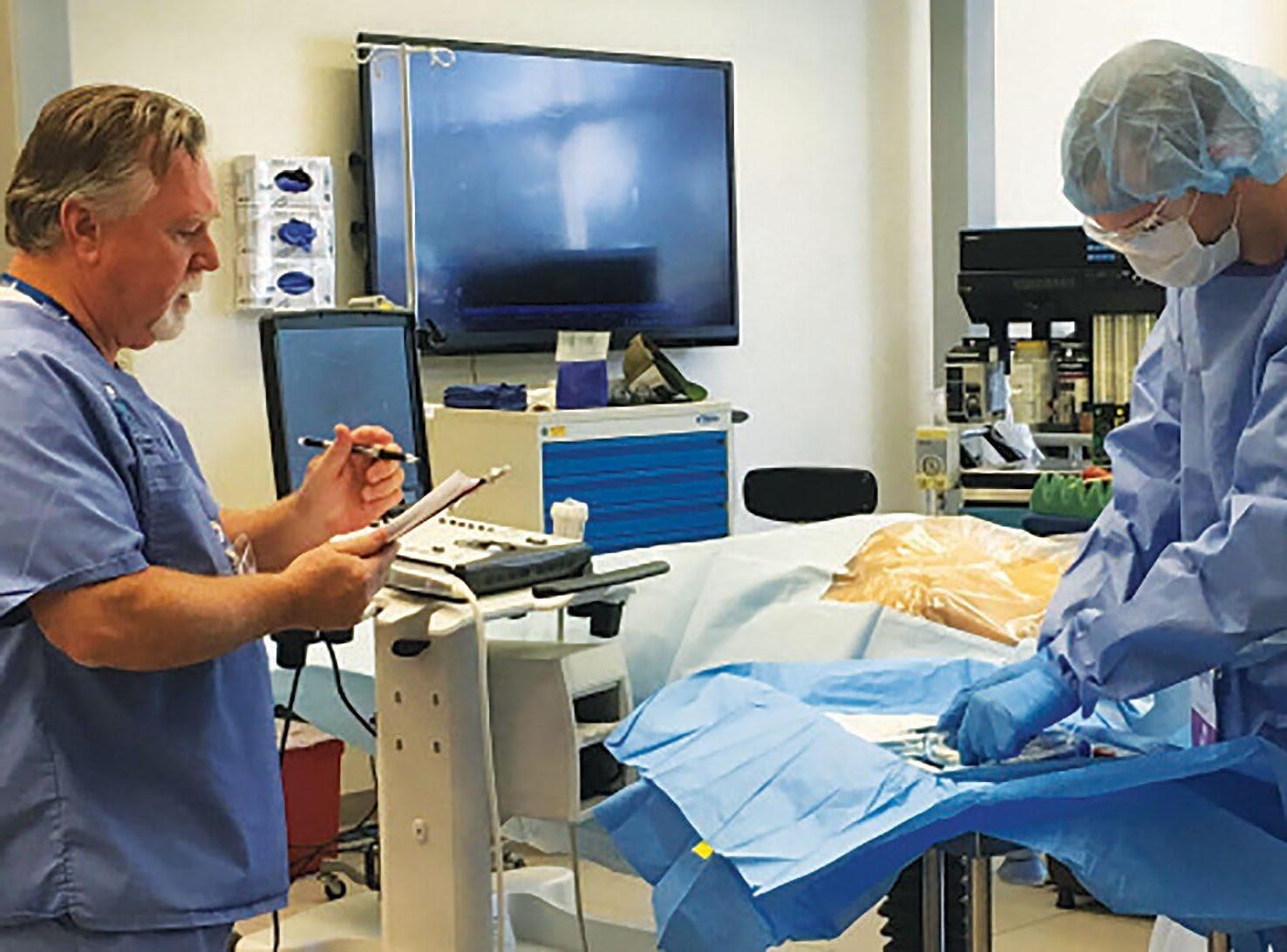

Recent research shows that approximately “60,000 registered nurses leave the profession each year and one million RN’s may retire by the year 2030” (Wolters Kluwer, 2020, p. 1). A concrete solution to this problem does not exist. However, the American Nurses Association Mentorship provides a potential vital solution to helping nurses stay in the profession.
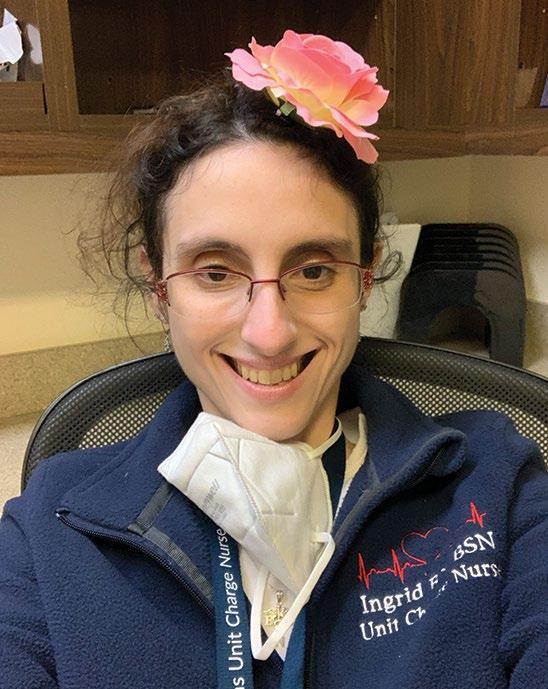
Ten months ago, I received an email asking me to join the 2020-2021 American Nurses Association Mentorship program. This would enable me to be paired up with a local mentor in Florida with at least five years of experience. I had just started my PMHNP/DNP program at Regis College, was homeschooling my daughter and working fulltime nights. I felt overwhelmed with the amount of responsibility in my personal and professional life. However, the mentorship program really changed my life. I was paired with Cheryl Christy DNP, MSN, RN. I felt an instant connection with her. The ANA provided
an online virtual membership forum. Our biweekly phone conversations provided me with an outlet for discussing work issues and a vast amount of advice that helped me to grow personally and professionally.
At the end of the program, Dr. Christy pointed out how I had grown into my new role as a Unit Charge nurse and become a nurse leader in the skilled nursing/ rehabilitation setting. But I also gained a lifelong friend and resource! I will be forever grateful to the ANA for this opportunity. The next Mentorship program begins on September 27, 2021. I highly recommend it for new nurses and experienced leaders that want to make a difference!
For information on becoming a mentor or mentee, go to https://community.ana.org/pages/mentorprogram
References Wolters Kluwer. (2020, August 19). Mentoring across the nursing profession: Lessons from the ANA. Wolters Kluwer. https://www.wolterskluwer.com/en/expert-insights/ mentoring-across-nursing-profession
About the Author:
Ingrid Allison Bozeman is currently a PMHNP/DNP Student at Regis College. I work full-time overnights as a Unit Charge Nurse in a skilled/nursing rehabilitation facility in Gainesville, Florida. I am married twelve years and homeschool my daughter Tiffany who is entering middle school in the fall!

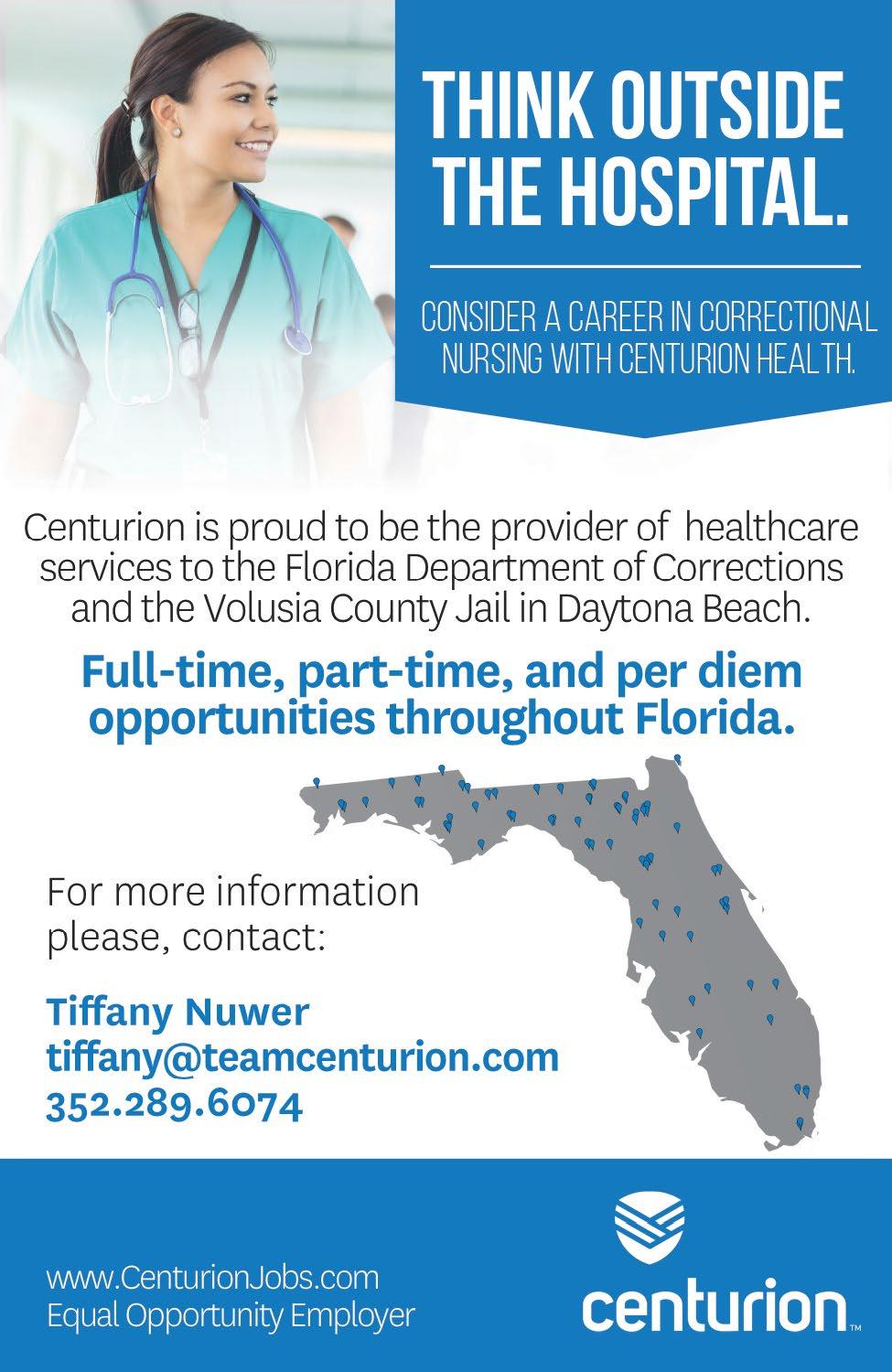

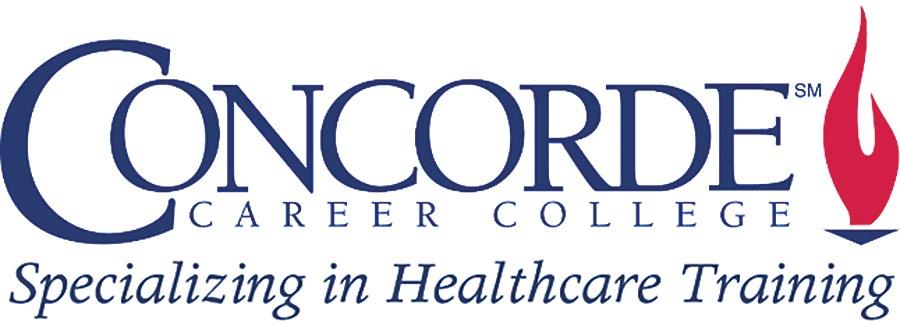
Recently a study was conducted on the perceptions of 30 oncology health care providers working on the frontline during the COVID-19 pandemic (principal investigator: VKM). The qualitative design consisted of semi-structured telephone interviews and a thematic analysis. The majority of the participants were from Florida (n = 25, 83.3%), were nurses (RN and APRN n = 25, 83.3%), and worked in the outpatient setting (n = 18, 60%).
Interview questions and probes largely targeted their perceptions of the pandemic on self, oncology patients, and the practice settings. Interwoven throughout the participants’ responses and resulting themes was a strong emphasis on advocacy. Below are some findings the study has highlighted for focused areas of advocacy:
• Self-care
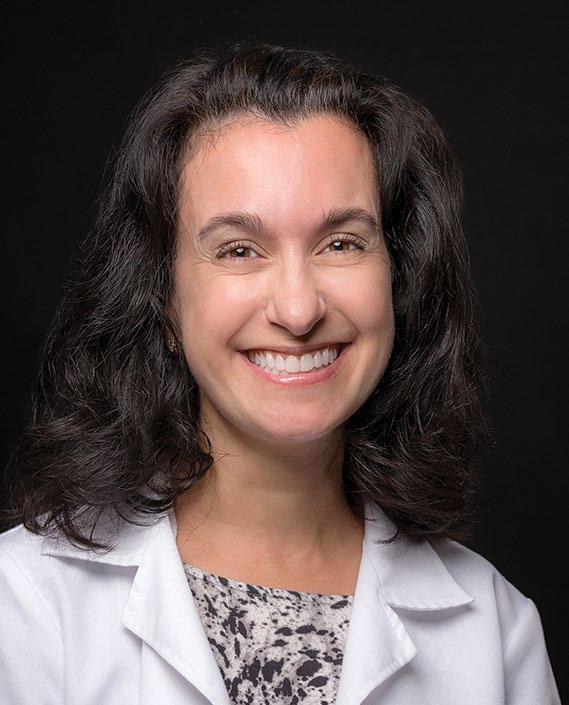
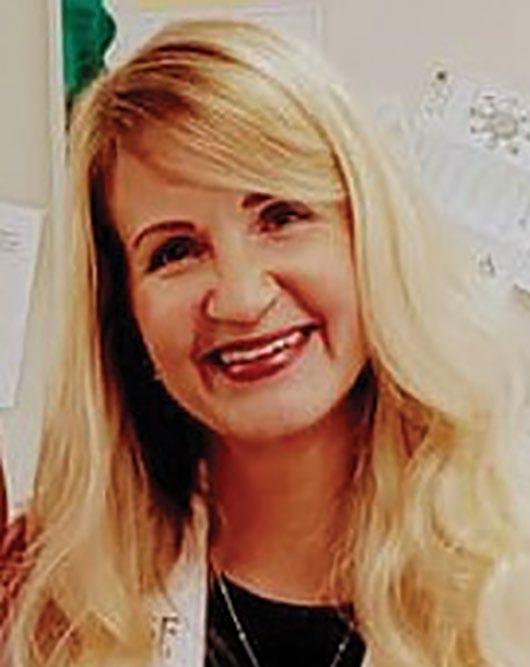
• Finding a balance between work and home, especially when working remotely
• Adequate supplies, e.g., personal protective equipment
• Specialized training and education, e.g., use of telehealth and telehealth reimbursement
• Appropriate and ongoing mental health services and resources for employees as well as oncology patients
• Resources to share with patients on staying safely connected to family and friends
• Direct involvement on emergency preparedness committees
• Serving on professional organizations driving practice to ensure voices are heard
Advocacy is defined as the act or process of supporting a cause or proposal. While this list is not all inclusive, the study has highlighted areas of improvement brought to light by a pandemic. These areas of focused advocacy would serve us well in preparing for future pandemics and fortifying resiliency among frontline workers.


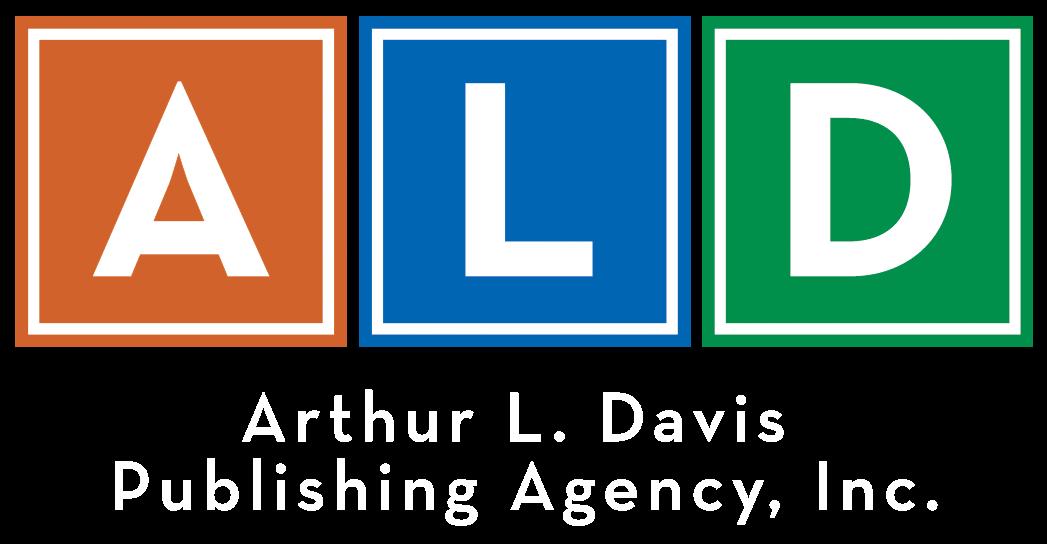



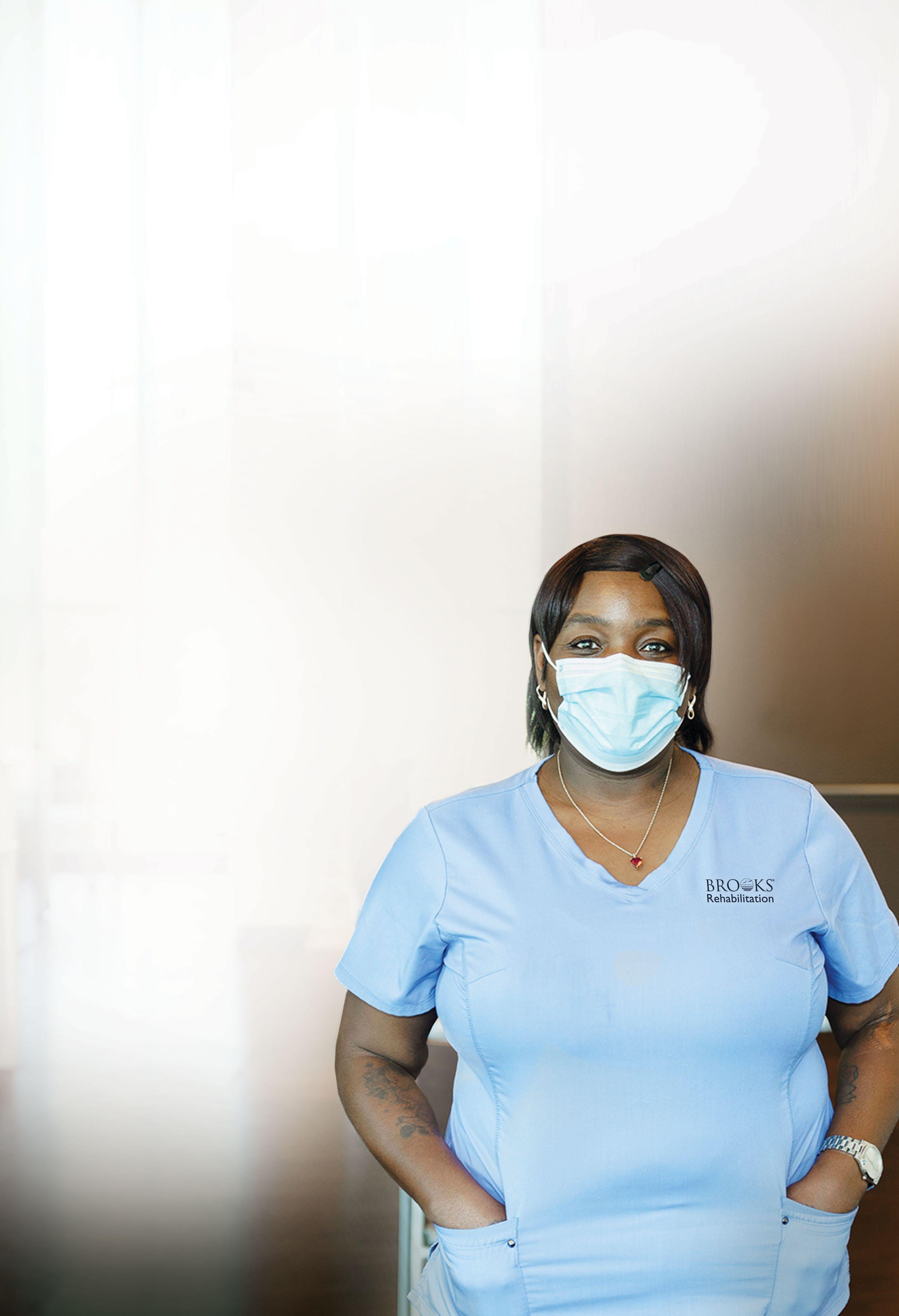
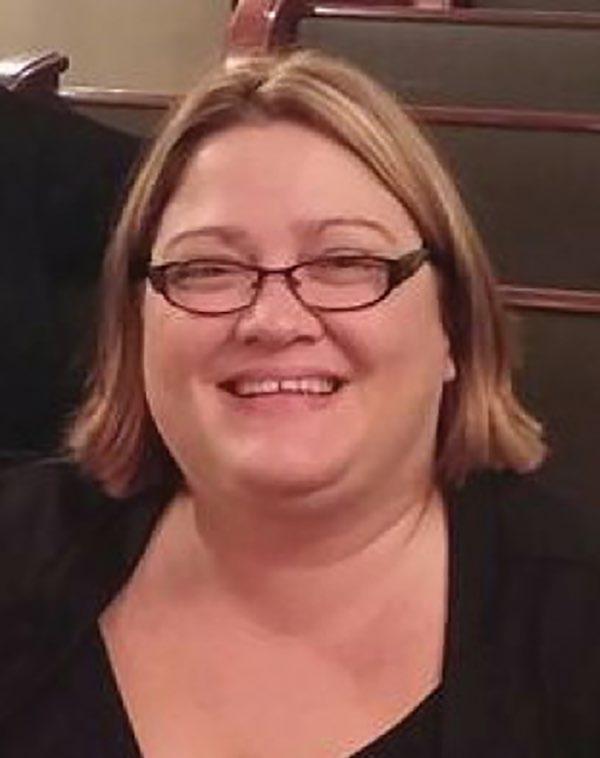
Delirium significantly increases a patient’s risk of falling and has serious negative impacts on mortality, morbidity, and quality of life (1,3). Very simple strategies have been widely proven to be effective in delirium prevention but are largely underutilized by hospital providers and staff (3,4). The importance of good communication between both parties and family/caregivers in care-planning for delirium prevention strategies is vital (2,3). Unfortunately, despite poor outcomes and the media coverages’ increasing attention to this issue because of COVID-19, dissipating resources and staffing shortages have deprioritized delirium prevention (3,5).
A recent scholarly project was performed by this author with the intent to improve caregivers’ involvement in such care. The author found that empowering caregivers with education and tools to become involved in care-planning for delirium prevention in their loved one during a hospitalization, worked to significantly improve their confidence in doing so (3). However, anecdotal feedback from caregivers during that project unveiled a significant barrier to this collaboration with hospital staff; feedback echoed by other studies subsequently located. The author discovered:
“Many caregivers did not see a possibility of working together with hospital staff and providers to become involved in care. When the topic was brought forward to the caregivers that they would be advocating for and insisting on day-to-day care that would prevent delirium in the hospital, many of them felt, from past experience even prior to COVID, that they were not free to do so. They verbalized fear of pushback from hospital staff, that they and their loved one would be retaliated against, and/or that the staff would simply refuse to implement the strategies into the plan of care and cite “shortage of staff due to COVID-19” as a rationale.
These caregivers’ perspectives should have a great impact on practice. Hospital healthcare professionals should look at policies and practices that make patients and families feel free to speak up, work together as part of the healthcare team, and work to eliminate or reduce any fear of repercussion if the caregivers do involve themselves in care. Such policies should also ensure the practices are consistently being put into practice at every level, especially at the bedside. This project sought to arm caregivers with knowledge and tools to help hospital staff realize the importance of delirium prevention and simple strategies to prevent it. It is now up to healthcare professionals to welcome caregivers’ attempts at collaboration, even when they themselves are busy and ‘short staffed due to COVID.]” (3, pp 26-27).
How will this understanding of how we affect our patients and families change our practice?
References
1) Johansson, Y. A., Bergh, I., Ericsson, I., & Sarenmalm, E. (2018). Delirium in older hospitalized patients—signs and actions: A retrospective patient record review. BMC Geriatrics, 18(1). https://doi.org/10.1186/s12877-018-0731-5
2) Ludolph, P., Stoffers-Winterling, J., Kunzler, A. M., Rösch, R., Geschke, K., Vahl, C., & Lieb, K. (2020). Nonpharmacologic multicomponent interventions preventing delirium in hospitalized people. Journal of the American Geriatrics Society. https://doi.org/10.1111/jgs.16565
3) Manolas, H. (2020). Improving Caregivers’ Perceived Involvement in Care Through Facilitating Communication with Hospital Providers. https://doi. org/10.46409/sr.EHOY8378
4) Martinez, F., Donoso, A., Marquez, C., & Labarca, E. (2017). [Special section]. American Association of CriticalCare Nurses, 37(6), 36–47. https://doi.org/10.4037/ ccn2017531
5) Paris, F. (2020, May 29). COVID-19 takes heavy toll on people with dementia-even those who survive. wbur https://www.wbur/hereandnow/2020/05/29/covid-19dementia-surviving?
About the Author
Heather Manolas, DNP has a passion for improving care for the elderly and assisting nurses improve their practice. She currently teaches nursing at various levels, drawing from a clinical background in surgical trauma/ER nursing. Dr. Manolas looks forward to becoming involved in legislature to continue her efforts in becoming an agent of change.

and other front-line workers. Several members not only experienced caring for COVID-19 patients but also contracted the virus themselves. Some even experienced the deaths of their colleagues as well as the phenomenon of long haulers. They were extremely disappointed by the unclear guidance from the CDC that they feel led to their painful experiences. Many of those who survived are unwilling or unable to return to the bedside to deliver care, further exacerbating a pre-existing shortage. This task force has created a position statement which will be discussed at our upcoming Membership Assembly in order to propose actions for the future. They are also gathering resources to support the mental health and well-being of nurses. Another goal is to tell the stories of Florida nurses as they have experienced this crisis. You will be hearing more about this project, which is meant to have an impact by informing the public as well as key stakeholders about the impact of the Pandemic on our profession. We also hope to communicate proposed solutions for future events of this nature. A more complete report
of the activities of this Task Force will be available at the Membership Assembly.
The FNA Social Justice and Health Task Force has worked to identify access to care and health disparities that exist in our state and the ways in which nursing can have influence in this space. The first action of the task force in addition to identifying issues was to hold a Town Hall in which nurses were invited to attend and share their perspectives. Next steps are being discussed in upcoming meetings. The work of this task force also intersects with issues related to the pandemic as those who have difficulties accessing care or those who impacted by health disparities were also disproportionately affected by COVID-19.
The Diversity, Equity and Inclusion Task Force was formed in response to a national initiative to recognize that society has evolved to include many types of people from a variety of races, ethnic groups, and gender roles. The feeling of the Assembly was that in order to be responsive and forward thinking, attention to this issue was key to making sure that both our profession and the health care environment was being served to the best of our ability. After much discussion, the task force decided that the first substantive
action was to look at the diversity and inclusiveness of our own organization. A survey was developed and is currently in progress. Future activities will be determined based on the survey results and any other parameters determined by Task Force members.
The work of the task forces will result in some future actions of the association. Some of it may develop into legislative action, while some may move forward to other stakeholder groups. We may seek partnerships to add strength to our actions. But one thing is clear, if we do not find common ground and speak with a strong, unified voice within our profession, our progress will be difficult.
The commitment and engagement of individual MEMBERS throughout this process has been stellar. I need to stress that some have also contacted LOCAL legislators and shared their stories in an informative and professional manner. All politics is local and that kind of support is what we need to make a difference. Nurses in each legislative district must carry a unified message. Join us today at www.floridanurse.org/join Once you join, go to our legislative page and contact us to learn how you can add your voice to our initiatives. Advocacy is a cooperative effort.





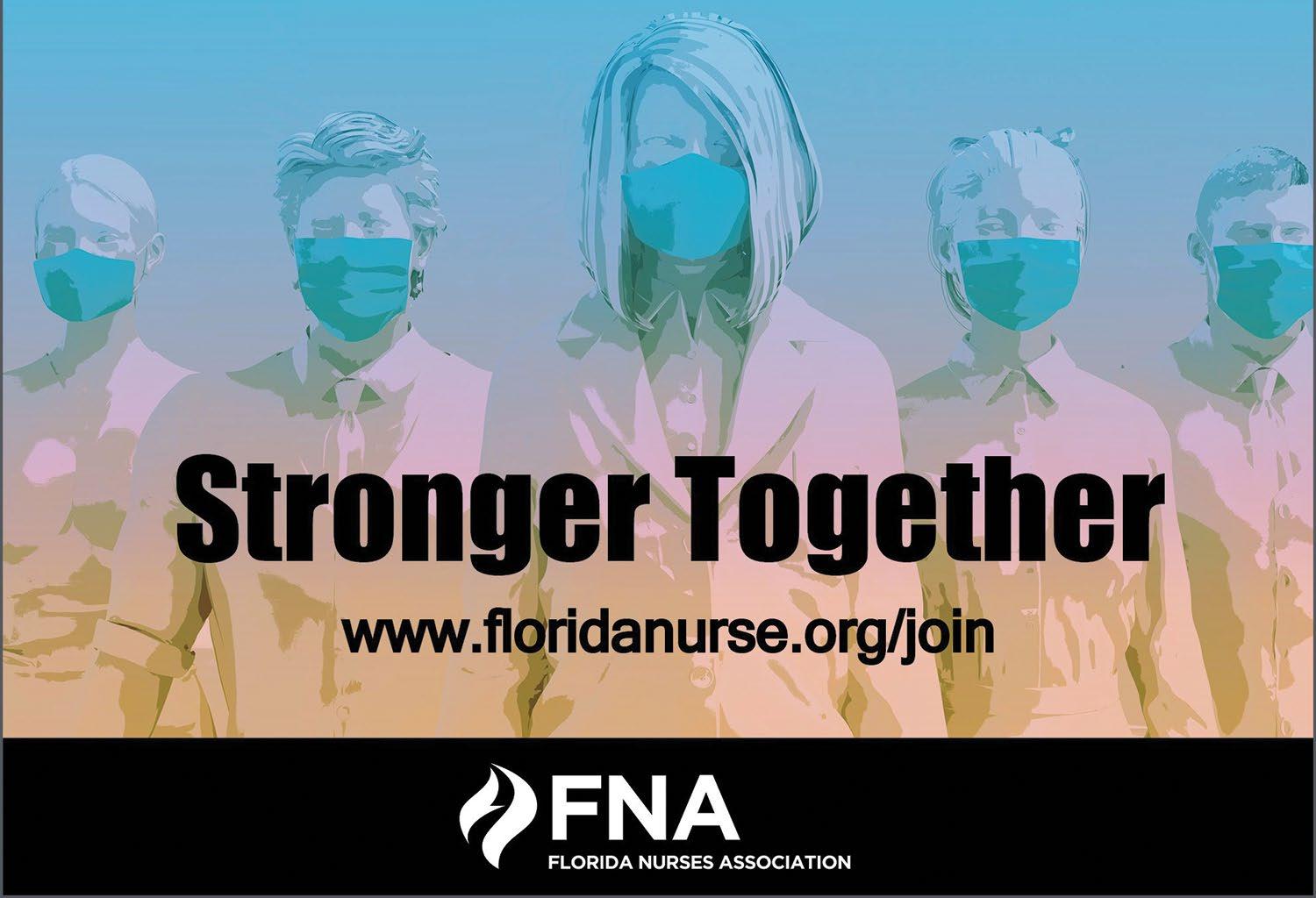
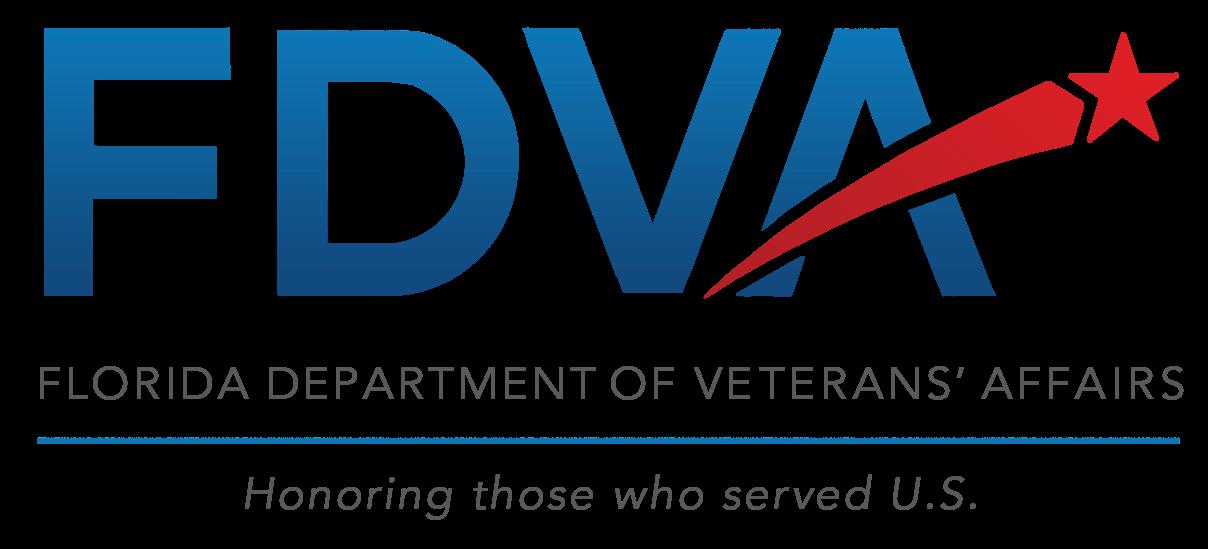

Veterans’ Homes RNs, LPNs, & CNAs needed at all locations
Lake City The Robert H. Jenkins Jr. Veterans’ Domiciliary Home
Daytona Beach The Emory L. Bennett State Veterans’ Nursing Home
Land O’ Lakes The Baldomero Lopez State Veterans’ Nursing Home
Pembroke Pines The Alexander “Sandy” Nininger State Veterans’ Nursing Home
Panama City The Clifford C. Sims State Veterans’ Nursing Home
Port Charlotte The Douglas T. Jacobson State Veterans’ Nursing Home
St. Augustine The Clyde E. Lassen State Veterans’ Nursing Home
Port St. Lucie The Ardie R. Copas State Veterans’ Nursing Home
Orlando Lake Baldwin State Veterans’ Nursing Home
For employment opportunities at the homes, call the FDVA Human Resources Office at (727) 518-3202, Ext. 5579 or visit the People First website at https://jobs.myflorida.com/joblist.html
FNA’s Director of Recent Graduates, Kathryn Barrows, served on the Board of Directors from September 2019 – May 2021. During her tenure in this position, she was involved in a number of activities with FNA. She served as the critical voice of new graduate nurses during pivotal conversations and decisions with the FNA Board of Directors. She was able to convey the challenges and frustrations experienced by many young nurses working during the pandemic. In September 2020, Kathryn held a Discussion Board for New Graduate Nurses to talk about their experiences during the pandemic, what challenges they faced, and lessons learned that could be implemented going forward. When Kathryn began her role in 2019, she could not have anticipated the challenges nurses would be facing in the following year, yet she maintained her steadfast commitment and participation with FNA throughout many difficult months. The Board of Directors was grateful to have her perspective and input. In May 2021, Kathryn resigned her post with FNA to pursue a new career opportunity out of state. We thank her for her service and wish her all the best in her new venture!


We are pleased to welcome Danielle Weaver as the newly appointed Director of Recent Graduates. Danielle has previous experience with membership recruitment through her role with the Pennsylvania State Nurses Association as Membership Engagement Coordinator and leader of the Young Nurse Professionals group. Danielle has already hit the ground running with several ideas for projects to engage new graduate nurses in Florida including new networking programs and publications. Keep your eye out for exciting new developments coming soon! Danielle was appointed as the Director of Recent Graduates in May 2021 and will serve in the role through the remainder of the term ending September 2021. She will seek re-election for the 2021-2023 term.


The 2021 FNA Research and Evidence-Based Practice Conference was a dynamic and engaging virtual conference with 37 digital poster presentations, a nursing research panel presentation, and keynote presentation. Dr. Lois Marshall, chair of the Nursing Research Special Interest Group welcomed attendees and hosted the event. The keynote presentation “Evidenced-based Nursing Simulation Research: Implications for Practice” was presented by Dr. Mindi Anderson and Dr. Desiree Diaz from the University of Central Florida. A panel presentation comprised of five nurse researchers discussed the “Resilience of Nursing Science Beyond the Pandemic: Blessing and Curses.” The panel presentation was in the style of a fireside chat and the presenters shared their experiences (both successes and setbacks) during the last year. Panel presenters included: Susan Fowler, PhD, RN, CNRN, CRRN, FAHA, FCNS, Palma Iacovitti, DNP, MBA, RN, Cheryl Krause-Parello, PhD, RN, FAAN, Beth Pratt, PhD, RN, and Robyne White, PhD, MSN, RN.
Thirty-seven diverse projects from nurse researchers across Florida (listed below) were displayed in the Virtual Poster Hall. Each poster presenter had a video chat room in which they were able to take questions and present their projects to audience members during the poster breakout sessions. Congratulations to all of the outstanding achievements of those who participated!
Poster Presentations
Post-Licensure RN to BSN Nursing Students: Maintaining Collaboration and Engagement via Technology with Community-based Agencies
Maria Grace Amendola, PhD, RN University of North Florida
The Opioid Epidemic: A Children’s Health Crisis
Suzan Blacher, PhD, MSN, RN, CARN Drexel University
Nurse Residents’ Legacy Letters: A Qualitative Analysis
Janelle Brown, BSN, RN, MEDSURG-B | Susan Fowler, PhD, RN, CNRN, FAHA, FCNA | Tina M. Mason, MSN, APRN, AOCN, AOCNS, FCNS Moffitt Cancer Center
Registered Nurses’ Compassion Satisfaction and Compassion Fatigue
Kathleen Brown, EdD, MSN, RN Grand Canyon University
Factors Influencing Preceptors’ Attitudes, Perceptions, and Behaviors Regarding the Clinical Competencies of Graduate Nurses: A Qualitative Grounded Theory Study
Anthea Burton Elwin, PhD, RN Jackson Health System
Development of Clinical Reasoning and Diagnostic Accuracy in Nurse Practitioner Students
Deborah Cantero, DNP, APRN, FNP-C | Linda Comer, PhD, RN, CNE | Melissa Radecki, PhD, RN, PCCN-K
Florida Southern College
Pain Management Protocol for Vaso-Occlusive Crisis in Children with Sickle Cell Disease in the Emergency Department at Nicklaus Children’s Hospital
Disleny Cruz, BSN, RN, CPN, CPHON Nicklaus Children’s Hospital

What prevents pregnant Black women from meeting physical activity guidelines, and what can nurses do to support more physical activity?
Findings of a mixed methods study.
Jean Davis, PhD, DNP, EdD, FNP, CNS | Carmen Giurgescu, PhD, RN, WHNP, FAAN
University of Central Florida
The Impact of Patient Care Delivery Models on the Work Environment
Marie Desir, MSN, CCRN-K | Deborah Laughon, MSN-Ed, DBA, CCRN AdventHealth Celebration
A Quality Improvement Project to Reduce Mother’s Own Milk Administration Error Risk in the NICU
Grecia Ferreyra, BSN, RN, RNC-NIC, CLC, CBC
Nicklaus Children’s Hospital
Standardized Discharge Checklist Improves Hospital Discharge
Bridgette Johnson, PhD, APRN | Yves Dehaut, MSN, CNL, PMHNP-BC | Marjory Merisier, BSN, RN | Jennifer Domingue, BSN, RN | Reynan Llubit, BSN, RN Jackson Memorial Hospital
There’s No Place Like Home: A Standardized Discharge Plan to Reduce Hospital Readmission Rates
Jenna Klareich, MSN, RN, CPN | Ana Bandin, MSN, RN, CPN | Amanda Canizares, BSN, RN
Ruth Dieguez, ASN, RN | Christine Mirabal, BSN, RN
Nicklaus Children’s Hospital
The Oral Microbiome During Pregnancy: A State-ofthe-Science Review
Rebecca Koerner, MS, APRN, CPNP-PC University of South Florida
The Impact of the Pandemic on Prelicensure Nursing Students’ Academic Performance Rayna Letourneau, PhD, RN University of South Florida College of Nursing
Improving Caregivers’ Perceived Involvement in Care Through Facilitating Communication with Hospital Providers
Heather Manolas, DNP, RN
Sunny Disposition: A Descriptive Analysis of COVID-19 Hospitalizations in North Florida
Margaret Margretta, MSN, APRN, FNP-BC University of Florida
Improving Adherence with a Sleep Enhancement Protocol to Reduce Sleep Disturbances: A Quality Improvement Study
Nikki Matos, APRN, MSN University of Florida
Self-Efficacy: Nurses’ Perceptions of Caring for Patients Living with Diabetes
Victoria McCue, PhD, MSN, RN, CPN Baptist Health South Florida
Engaging Tomorrow’s Frontline Clinical Nurses Through Group Mentoring
Christina Mellon, MSN, RN | Jennifer Cordo, DNP, RN, NE-BC | Karla Alvarado, MALS, BS
Nicklaus Children’s Hospital
A Nurse-Led Comfort Intervention to Manage Postoperative Nausea and Vomiting in Pedatric Patients
Kristina Miranda, MSN, RN, CNL, CPAN, CPN, CCRN | Susan Golzbein, BSN, RN, CPAN, CPN Nicklaus Children’s Hospital
Screening for Postpartum Depression in Pediatric Primary Care
Caitlin Mosher, BSN, RN, DNP University of Florida
Evaluating Implicit and Explicit Sexual Attitudes Among United States Baccalaureate Nursing Students
Michael Murphy, PhD, RN, RGN University of Northern Colorado Effectiveness of Multimodal Pain Management Education Program in the Primary Care Setting
Lauren Nunez Gold, BSN, RN University of Florida
Reducing COPD Exacerbation Among African American Affected with COPD
Jean-Pierrot Orelus, DNP, FNP-BC
Florida International University
Enhancing the Diversity of the Nursing Workforce: Facilitating the Acculturation of Internationally Educated Nurses through a Transitions Program
Kathy Rovito, MPH, CHES | Adam Kless, MSN, MBA, RN, NEA-BC | Shari Dingle Costantini, MBA, RN
Avant Healthcare Professionals
A Transition Program for Internationally Educated Nurses: Contributions to Patient Safety and Patient Experience of U.S. Nursing Care
Kathy Rovito, MPH, CHES | Adam Kless, MSN, MBA, RN, NEA-BC | Shari Dingle Costantini, MBA, RN
Avant Healthcare Professionals
Increasing Immunization Rates among Middle School Students with the Implementation of a Evidenced-Based, School-Based Vaccination Clinic
Maria Russ, PhD, APRN, CPNP, CHN | Robyne Rentz, DNP, CNM, BC, WWHP, BC, APRN, Chief Flight Nurse
Hillsborough County Public Schools / Chamberlain and South University
Internet-based Self-Management Programs: Another Treatment Option for Depression
Elizabeth Sampson, DNP, PMHNP, FNP
Grant Collaboration and Organizational Effectiveness
Monica Scaccianoce, DNP, PHMHNP-BC Florida International University
Rural Haiti Residents Living With Cerebrovascular Disease-Related Disabilities - A Phenomenological Inquiry
Judith Seme, PhD, RN West Coast University
The Caring Experience of Fetal Loss and Termination of Pregnancy through the Eyes of Gynecological Medical/Surgical Nurses
Fowler Susan, PhD, NR, CNRN, CRRN, FAHA, FCNSI
Orlando Health
Knowledge and Fears of Parents of Children Diagnosed with Epilepsy
Fowler Susan, PhD, NR, CNRN, CRRN, FAHA, FCNSI
Orlando Health
Pedaling for Air: A Pediatric Inpatient Approach to Enhance Lung Function
Adrianna Valiente, MSN, APRN, CPN
Nicklaus Children’s Hospital
The Effect of Acuity-Based Nurse Staffing on Nursing Medication Errors
Eugene Waterval, PhD, RN, NE-BC
Orlando Health / University of Central Florida
A Healing Hour: An Interdisciplinary Approach to Implementing Quiet Time in a Pediatric Cardiac Intensive Care Unit
Ruby Whalen, MSN, RN, NC-BC | Amanda Clifton, DPT
Nicklaus Children’s Hospital
Caregivers of a Child with Autism in South Florida: A Phenomenological Inquiry
Marline Whigham, PhD, EdD, APRN-FNP West Coast University
Enhancing Skin Cancer in Primary Care: A Quality Improvement Project
Jordan Zabari, DNP, APRN, FNP-C Florida International University

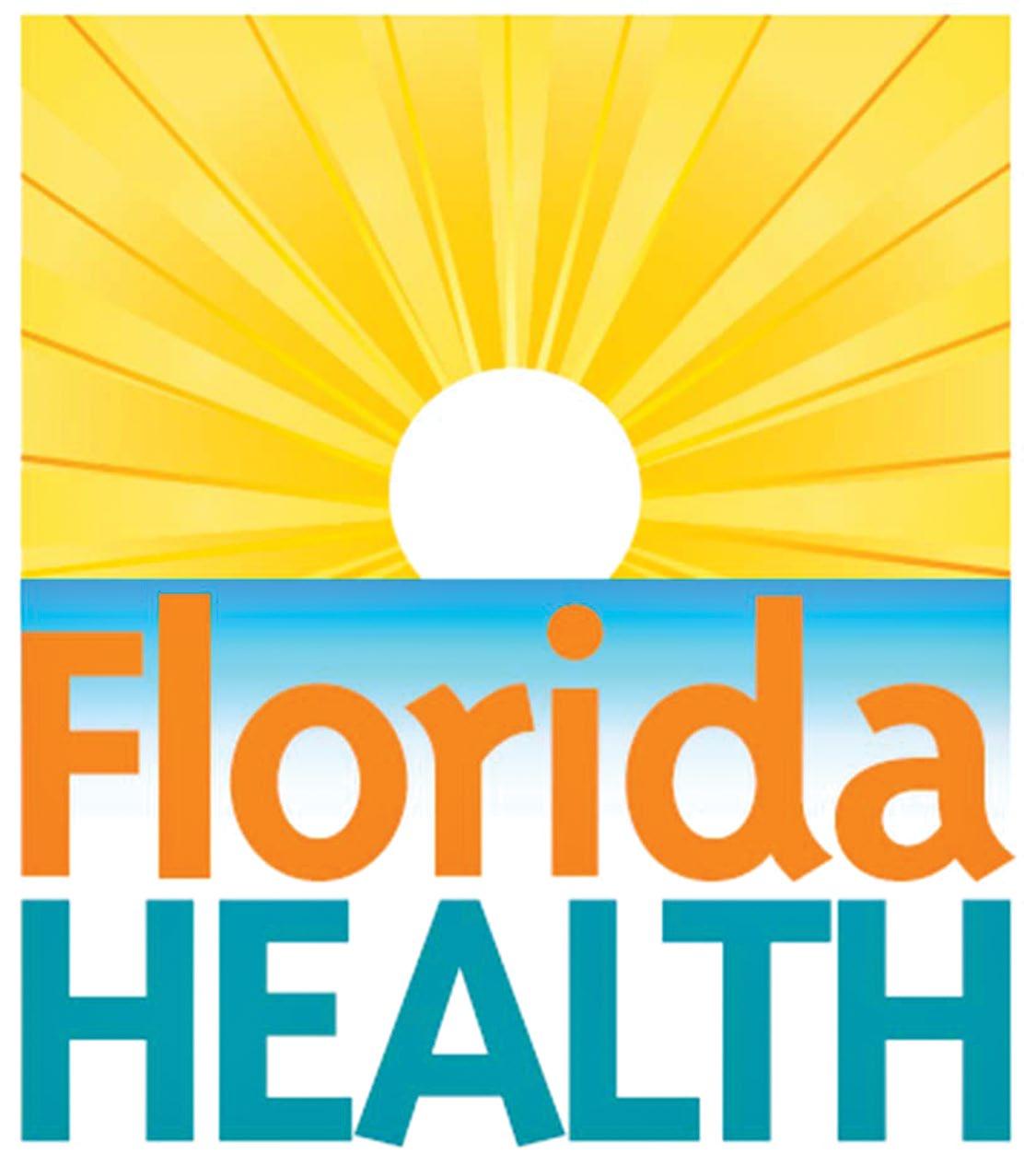
Candy Wetherell
Porshea Williams
Renee Williams
Olga Williams Gromovskaja
Cailin Yost
Southeast
Tiffany Alexander
Janzie Allmacher
Ramiele Almeida
Anabel Arcila
Rebecca Armstrong
Monique Banton
Evadelene Baptiste
Nishka Baptiste
Anique Bedminster
Eileen Bermudez
Valeria Betancourt
Johanna Boaziz
Rhiannon Boffa
Sophie Cairns
Julia Canipe
Amanda Carbajal-Martel
Sophia Castillo
Brianna Chardon
Jhonson Chatelain
Kennie Civil
Ghislene Clermont
Ingrid Daley
Lisa Daniels
Martha Delgado
Mary Doan
Naomi England
Michelle Ess
Milande Estima Pierre Louis
Kim Exantus
Jenna Fallon
Marissa Feo
Stanley Francois
Janet Galarraga
Susan Gibbs
Shanon Gordon
Maxine Grant
Virginia Greiner
Monica Guzdziol
Jamie Hansen
Clarinda Hefner
Johna Henderson
Connie Hernandez
Taylor Holmes
Nathalie Hosty
Michelle James
Gina Johnson
Jacqueline Kennel
Linda LaCasse
Isaac Lamb
Rachelle Laroche
Kristen Leotaud
Brooke Leyendecker
Lindsey Liott
Ava Majewski
Brenda-Kay McFarlane
Jane McGinley
Kelly McLaren
Caroline Menard Fort
Nicole Moore
Michelle Morales
Lina Mosquera Rosales
Olivia Nicholas Marie Nicolas
Kimberly Nielson
Jacqueline O’Connor
Yenny Olarte
Michael O’Malley
Jessica Palacios
Monica Pappas-Napier
Susan Parda-Watters
Kathleen Paul
Yaise Perez
Monica Posner
Yolette Python
Ileana Ramos Estevez
Kimone Reid
Taylor Rembert
Namel Renelus
Alexandra Roberts
Merri Roche
Stacy Rohr
Sheila Romanus
Shelby Saint Hillien
Hudson Saint Louis
Scarlett Scarlett
Pamela Scheidemann
Terri Schmitt
Brian Skirvin
Azona Kyle Smith
Marlaine Smith
Nicole Sorrells
Liza Sottile
Kayla Spriggs
Laura Stein
Hope Stephens
Elizabeth Stokesbury
Denise Strozak
Herla Tassy
Olive Thorne Rattray
Iva Toussaint Zollicoffer
Whitney Treloar
Viona Turner
Jorge Valdes
Michelle Villar
Althea Wade-Brown
Aliyah Walters
Norina Glenda Washington
Vanessa Williams
Jessica Yoder
Chad Zellenga
Southwest
Carol Alexander
Jessie Amilcar
Giannina Andino
Melissa Bagby
Amelia Bell-Hawkins
Peta Gay Bezek
Adam Bilder
Emily Birkhead
Anna Bonilla
Lisa Borbon
Joshua Brycen
Kelly Campbell Wigington
Asha Chandran
Dominga Constantino
Michelle Daddario
Sahily Escalar
Amarilys Eugelles
Lisa Ferrentino
Jennifer Higgins
Erika Hinson
Misti Hollingsworth
Milton Housen
Coral Mayers
Rebeca McNamara
Dominique McTernan
Abeer Mobarki
Robin Piaggione
Dianna Rioli
Trisia Rutter
Catherine Shoults
Maeriel Smith
Susan Stahnke
Velda Stewart
Jenna Strickland
Lora Sullivan
Nancy Terrinoni
Anthony Vera
South
Diana Adams
Julianah Adeyokunnu
Kathleen Adorno
Solomon Ajijo
Elizabeth Allinquant
Guillaume Anderson
Iris Arana Alonzo
Leyanis Avila
Ursula Avilus
Amber Badal
Kaydene Bailey
Jessica Barocas
Marilin Barreda
Ramona Bartley
Tamyko Barton-Thomas
Mitchell Berman
Caryn Blair
Connie Blanton
Stephen Boling
Clarene Brown-King
Elisabeth Bruzon
Judith Calvert
Yuneisy Camacho
Irving Campbell
David Campbell-O’Dell
Catheryn Candanoza
Erin Carey
Altagracia Carrasco
Arais Cavada
Hortense Chai
Gabriella Chaparro
Fernande Charles
Janeth Choiseul-Praslin
Alicia Ciliezar
Nancy Cisneros
Janelle Coke
Lyne Connor
Hannah Crisp
Richard Cruz
Josefa Cuevas
Kimberly Cyrus
Sandra Daccarett
Faezeh Darougheh
Natasha Davids-Waldo
Denise Delvalle
Ana Diaz
Lizzie Diaz
Georgia Dixon
Elaine Dominguez Segura
Lori-Ann Donegan
Coleen Dooley
Bridget Eguiluz
Cynthia Erazo
Bahattin Ergin
Monica Estupinan
Beverly Fajardo
Sydney Fernandez
Vanessa Flowers
Virginia Garbey Sanchez
Natasha Garcia
Jeannette Garcia Slanker
Vanessa Gaudin
Babley Mc Gayle
Lisa George
Lynn Gilmore
Antonia Gonzalez
Maikel Gonzalez
Shorraine Gordon-Daubon
Destiny Grant
Ramona Jo Griffiths
Abel Santiago Guerrero
Yvette Hall
Kimberly Hermie
Miguel Angel Hernandez
Ana Hevia
Tasha Hudson
Maxine Jacobowitz
Racquell Jenkins
Caroline Jensen
Roberto Jimenez
Yaima Joglar
Sajo Jose Pellissery
Priscilla Juncadella
Karen Kong
Kaelin Kunitz
Maria Leik
Chauyi Lin
Tricia Lindo
Sarah Long
Cristina Lopez
Priscilla Lopez
Marjorie Lubin
Anthony Lucchese
Luis Marquez Aguila
Rolando Marrero Ramos
Michelle Martinez
Daikel Martinez Tuero
Fay Mason
Maxine Mason
Sarah Massillon
Jessica Medina
Christina Medor
Kathleen Meier
Kim Miller
Kristina Miranda
Yadira Montalvo
Shaun Moore
Wanda Morancy
Dayron Morey
Hector Morier
Veronica Muvdi
Neika Neika
Edens Nicolas
Crystal Ning
Chanary Nop
Sarai Otano
Melissa Patino
Linda Pedraza
Shavonne Pedro
Bridget Pelaez
Gena Penn
Vinnita Pereira Tharsisius
Jennifer Perez
Whinney Philip Claudline Pierre Louis
Marven Pierre-Louis
Gail Pollen
Tasia Porter
Camila Ramirez
Evamaria Real-d’Arbelles
Luis Rengifo
Elisse Reyes
Bradley Rhatigan
Anselma Roberts Dayron Rodriguez
Elisa Rodriguez
Nicole Rodriguez
Sharon Rodriguez
Kelsey Ruiz
Monica Ruiz-Londono
Elsie Saguinsin
Cristina Sanchez
Annie Sanders Benjamin Sandoval
Bianca Santamarina
Viviana Santiago
Melissa Santos
Glenda Sarli
Pamela Sarpong
Roshan Scaria
Patricia Seabrooks
Allie Shrock
Genevieve Sierra
Ona Siurua Natalee Slavery
Charizma Sorrentinto Elena Souverain Ketsia Souverain Kathleen Strader
Tokatli Allan Tompkins Pamela Torreblanca
Tsai Estefania Valencia
Valentine Michelle Vega
Velazquez Farida Vildanova Yesenia Villalta Janice Weinstock Elissa Wells
Wyatt
Xinyu Xie Marlene Young
Zbieski
Jennifer Zylis
Other
Chaliana Batista Chacon
Crellin
Michelle Downey Judith Jaggers
